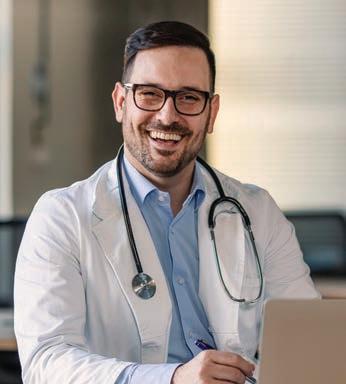PASSOVER

Congregation Beth Israel has a garden with biblical plants from the Passover story



Congregation Beth Israel has a garden with biblical plants from the Passover story

As the Russian invasion of Ukraine persists into its fourth week, many Americans are searching for ways to help refugees. One local realtor has tapped into his international network to help find housing and other assistance for those fleeing the country.
“It’s more than just about the Ukrainian people. It’s a moral, human issue. We as humans have a moral obligation to help people who want to live a free life on this planet,” realtor Oleg Bortman said.


Bortman is a Ukrainian Jew who came over to the United States with his sister and parents in 1979. He was only a toddler during this time, but his parents had shared with him the stories of how they traveled from Austria to Italy before eventually immigrating to the U.S.
“We spent between five to six weeks in two foreign countries without speaking the language and without any money. So I can’t imagine what it’s like or how difficult it would be uprooting my whole family like these refugees have done,” he said.

Once he found out that a cousin of his from Florida had relatives displaced by the conflict, he knew that it was time for him to use his skills as a realtor to help.
“I saw all the stuff going on with the bombing of the buildings, apartment complexes and hospitals. So I felt that connection and an obligation to humanity to help people,” said Bortman.
He asks others to tap into their sense of empathy and see the refugees as people who need support.
Dr. Robert Kravetz shares his vast collection of medical artifacts
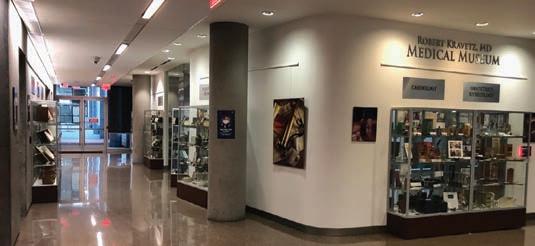

On the evening of March 13, 2022, guests invited to the dedication event celebrating the newly named Levenbaum Chabad House, Rohr Jewish Student Center received a red-carpet reception. Candle-lit lanterns led the way to The Law Tigers Outdoor Recreation Center filled with a variety of food stations, bar, giant ice sculpture and live music.
The construction of the recreation center broke ground in the backyard on March 20, 2017, and began the fiveyear transformation of the 80-year-old building at 971 S. Ash Ave. in Tempe. Upgrades include a new kitchen, hospitality suites, student lounge, basketball and entertainment courtyard, landscaping, shatterproof windows and new doors.
The upgrades result from the generosity of Paradise Valley residents Warren and Judy Levenbaum. Warren Levenbaum is a partner of Levenbaum Trachtenberg, an injury law firm based in Phoenix with offices throughout the western U.S. He’s also the founder and CEO of the American Association for Motorcycle Injury
SEE REALTOR, PAGE 2
“These aren’t bad people,” he said. “These are refugees that are being torn out of their homes, are being bombed and their lives are being turned upside down.”
January 7
January 18
February 4
February 18
As a realtor, Bortman works with professionals like entrepreneurs who have businesses in Europe. He reached out to them to see if they had any homes or knew of any organizations taking refugees in countries like Poland and Hungary. He does this so they don’t have to travel too far from home.

“The ultimate goal for them is to get back to their motherland,” he said. “So they want to stay close and go to neighboring countries because they have full intentions to get back to Ukraine and rebuild.”
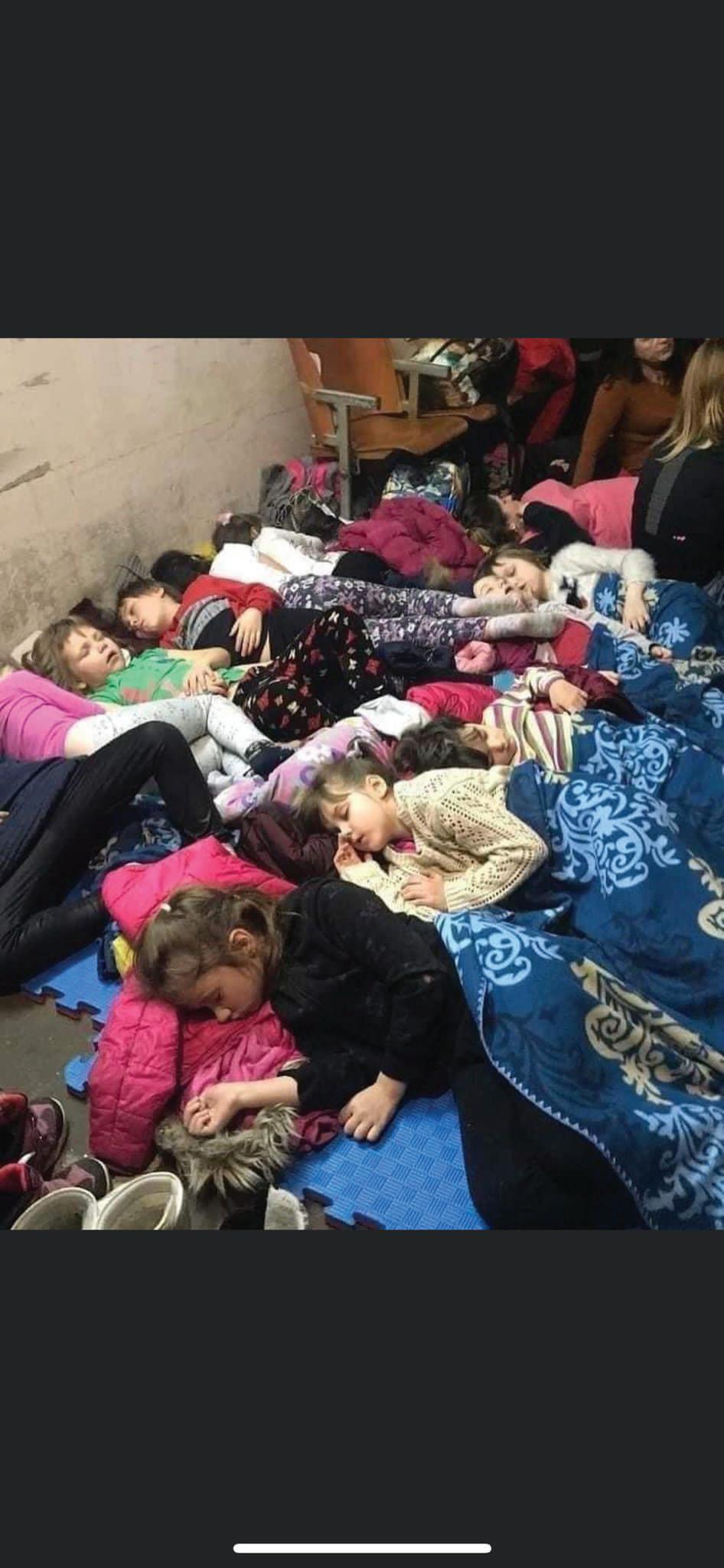
He’s also reached beyond his network to partner with different organizations and even ran a donation drive through the offices of The Brokery, a real estate company that he cofounded.
PUBLISHER Jewish Community Foundation of Greater Phoenix


GENERAL MANAGER
Rich Solomon | 602.639.5861 rsolomon@jewishaz.com
MANAGING EDITOR
Mala Blomquist | 602.639.5855 mblomquist@jewishaz.com
“Our news cycle gets shortened quite a bit. In 30 days, this could be behind us and then we’ll be talking about high gas prices. [Things are] not the greatest here, but the reality is that people are getting killed or kicked out of their homes there,”
August 5
August 19*
September 9
September 16
ADVERTISING SALES CONSULTANT

Jodi Lipson | 602.639.5866 jlipson@jewishaz.com
SUBSCRIPTIONS
602.870.9470 x 1 subscriptions@jewishaz.com


GRAPHIC DESIGNER
Frank Wagner | 410.902.2300 ads_phoenixjn@midatlanticmedia.com
March 4
March 18
March 25
April 1
April 8
May 6
May 20
June 10
July 8
July 29
September 23
October 7
October 14**
October 21
October 28
November 4
November 18
December 2
December 16
days prior to publication
ADVERTISING: 11 a.m., Friday 3 days prior to publication
Jaime Roberts, Publisher | 2013-2016
Florence Newmark Eckstein, Publisher | 1981-2013
Cecil Newmark, Publisher | 1961-1981
Pearl Newmark, Editor | 1961-1981
M.B. Goldman, Jr., Founder | 1948-1961
PROUD MEMBER OF
Lawyers, which does business under the title Law Tigers.


Rabbi Shmuel and Chana Tiechtel are the directors of the center that they have nicknamed the “home of the ASJews.”
Rabbi Tiechtel said his heart was “full of joy and happiness” as he addressed the crowd of more than 150 guests who came from all over the world and across the United States to celebrate.
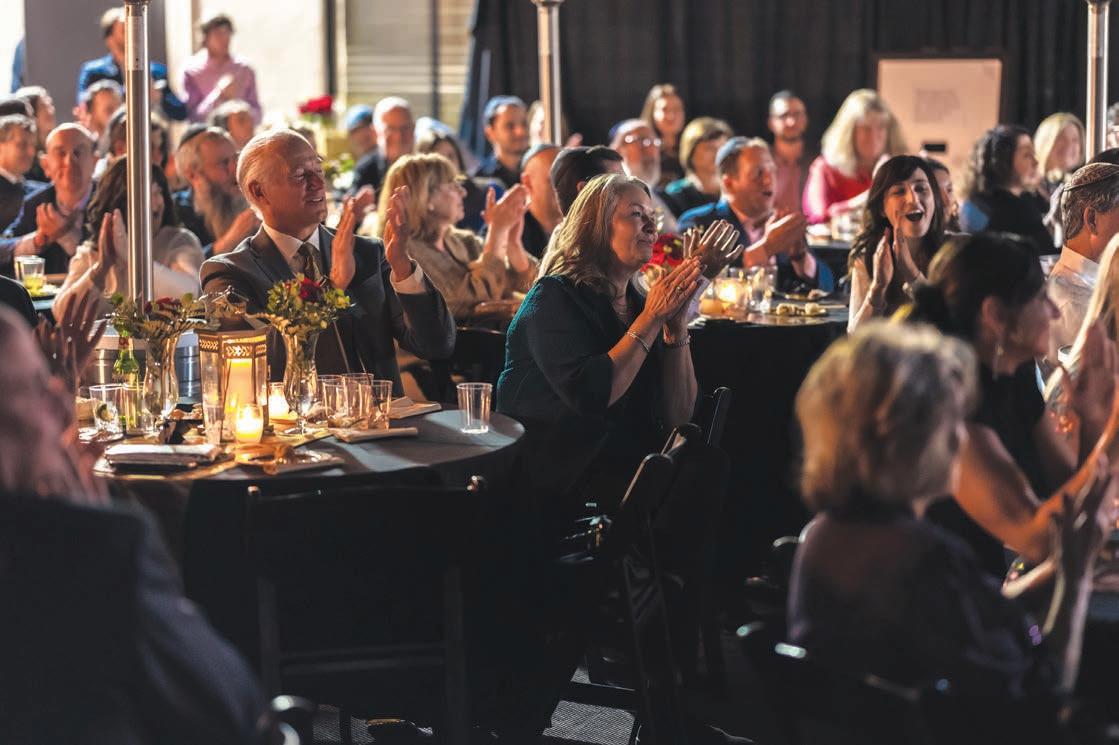
“Warren and Judy, you have changed Jewish life at ASU forever. Your generosity will affect a generation of students to come,” said Tiechtel. “At Chabad, every student is welcome no matter their affiliation. The family of ASU Chabad grows every year in each and every way.”
Students also addressed the crowd and they all mentioned that Chabad at ASU was their “home away from home.”
ASU Freshman Riley Bergeson said that in her hometown of Temecula, Calif., she was known as the “Jewish kid” at school because there was no Jewish community there. “My parents are my entire world and my siblings are very close,” she said. “When I asked my rabbi at home which university had the best Chabad on campus, he said ASU.”
She said that keeping Shabbat was difficult in the dorm. Having to use a key card to enter and exit forced her to stay in the room the entire time. Now, Bergeson comes to the center to stay on Friday nights in one of the hospitality suites, sometimes with up to 10 other young women.
Fellow freshman Ariel Feffer is another student who often joins Bergeson on the Friday night sleepovers. “I’m so grateful to have this place,” said Feffer. “All of my best friends I’ve met here at Chabad.”
Avin Kreisler is a junior at ASU who wants to go to medical school when he graduates. He started coming to Chabad at ASU when he was 16 because his older brother would bring him.
He shared fellow students’ stories of how Chabad at ASU brought them

closer to their Judaism.
“Rabbi and Chana put in 110%,” said Kreisler. “Chabad at ASU has become my own personal Israel, the ideal climate to be molded into my best self. You are physically and spiritually saving students’ lives.”
There was also a pre-taped video message from Corey Woods, mayor of Tempe, who could not attend the event in person because he was at the U.S. Conference of Mayors in Washington, D.C. In his statement, he thanked Chabad at ASU for “enriching Tempe.”
Shari Gustafson, who serves as the assistant dean of students on the Tempe campus, said, “ASU is grateful for your support. If a student needs a place of refuge, this is that place. I have joined events and the warmth, love and care — you can’t describe it.”
She provides oversight to the religious/ spiritual life at ASU, which includes serving as liaison to the Council of Religious Advisors.
When it came time for Warren Levenbaum to speak, he proved he’s not only a philanthropist but also an entertainer. He performed his “Seinfeldtype” comedy act donning a pair of Groucho Marx glasses with a funny nose, eyebrows and mustache and told the crowd, “I’m thrilled to do a comedy act tonight in front of beautiful people.”
When he was done with his act, Judy Levenbaum told the audience, “That was an experience — the more you clap, the more you encourage him.”
She then shared how being involved with Chabad at ASU has given the couple the chance to make an impression on hundreds of students’ lives. “They make this Chabad a home and it makes them proud to be who they are,” said Judy Levenbaum. “We are so proud to have our name on the building. I’m grateful and thankful that we had this opportunity.”
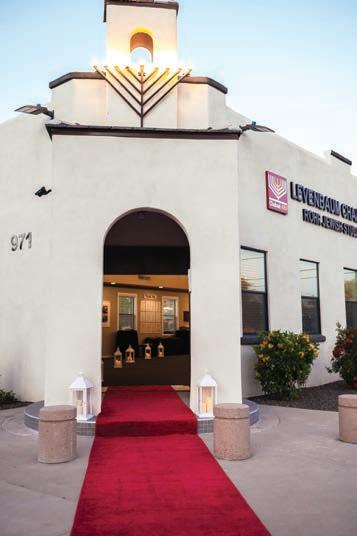
The Levenbaums’ adult children also spoke and shared how proud they are to have a father who gives back to the
community so generously.
The ceremony concluded with the Tiechtels presenting the Levenbaums with a piece of art made in Israel with a 3-D image of the Levenbaum Chabad House with a hand holding an image of Jerusalem. The piece has a verse in Hebrew inscribed on it that says, “Whatever he does, God makes him successful.”
“The hand symbolizes the hand of God holding you and giving you success,” explained Tiechtel “And the hand also symbolizes that you, Warren and Judy, with your support of the Jewish students here, are serving as a strong foundation for them and you are holding up Jewish life right here In Arizona.”
“My wife, Judy, and I have been inspired by Chabad’s mission to serve the Jewish student community at ASU and are forever grateful for what they do,” said Levenbaum. JN For more information, visit jewishasu.com.



On March 31, “¡Americano!” made history as the first Arizona-born musical to open in an off-Broadway theater, beginning its run at New World Stages in New York City next to “Jersey Boys.”

The musical that initially opened at Phoenix Theatre in January 2020 tells the story of Antonio “Tony” Valdovinos, a graduate of Phoenix’s Camelback High School who, after the 9/11 attacks, tried to enlist in the Marines on his 18th birthday. On that day, he found out that he was a “Dreamer” — an undocumented immigrant brought to the United States at age 2 from Colima, Mexico.

“¡Americano!” co-writer and member of the San Diego Jewish community Jonathan Rosenberg remembers where he was when he first heard Valdovinos’ story in the fall of 2016 on National Public Radio. “I was sitting in a parking lot, waiting for my daughter to get out of high school,” he said. “It was a round-table discussion taking place in Arizona having to do with the election and undocumented immigrants.”


Mid-Atlantic Media, a fast-growing publisher of niche community and ethnic titles, is seeking a sta writer for its full time publishing project Phoenix Jewish News in Scottsdale, AZ. Phoenix Jewish News is an award-winning, print and digital publication covering the greater Phoenix diverse Jewish community since 1948. Our ideal candidate has experience with and enjoys writing both news and feature stories, thrives in a deadline environment and has digital media experience.
You love telling the stories and tracking down the facts that are at the heart of any article. You can thrive on multiple assignments and are flexible about evening and weekend work. Words and ideas are your oxygen. Photography experience is a plus. So is familiarity with Jewish community and Israel.
As an employee of Mid-Atlantic Media, you’ll be a part of a rapidly expanding organization that, in addition to the Phoenix Jewish News, publishes Washington Jewish Week, Baltimore Jewish Times, and other publishing projects such as Jewish Exponent in Philadelphia and Pittsburgh Jewish Chronicle. Such a range of outlets a ords writers the opportunity to have multiple bylines across the U.S.
If you are a confident and capable reporter looking for a new opportunity with a fast-growing media company, this is your chance.
Rosenberg had made some prior connections in Phoenix, having worked on a musical that did not come to fruition based on a fictitious undocumented immigrant, and was able to get Valdovinos’ contact information.
Valdovinos agreed to a meeting with Rosenberg, Michael Barnard, the artistic director at the Phoenix Theatre Company, and Jason Rose, president of Rose + Allyn Public & Online Relations and owner of Quixote Productions. “That’s how the whole thing got started,” said Rosenberg.
“¡Americano!” set box office records in Arizona and concluded with 10 straight sold-old shows. The show is co-written by Bernard, Rosenberg and Fernanda Santos, and features an original score by composer Carrie Rodriguez and choreography by Sergio Mejia. Many of those involved in the Phoenix production, including many of the original actors, have traveled with the show to New York City.
In September 2021, the New York odyssey began when the production’s executive producer, Ken Davenport, learned that the Shubert Organization, owner of New World Stages, offered the show a spot next to “Jersey Boys” for spring 2022. The theater is actually in the Broadway district but is considered “off-Broadway” because it is less than 500 seats — it has 499.
Rose, the lead producer of “¡Americano!,” mobilized numerous business and political leaders in Arizona and New York to invest in the show. “We knew we had a really great piece of art and wanted to get to New York — and here we are,” he said.
Rose addressed the cast before a rehearsal
at the beginning of March, reminding them that they had done something that had never been done before in Arizona history.
“Success is not certain, but the one word I want you to think about is ‘defiance’ because every step along the way, we’ve defied all the odds. Let’s keep defying the odds as we enter this enormous stage,” he said. “Bring it every single night because you never know who’s going to be in the audience. You never know who’s going to create the momentum to help you reach your tipping point.”
George Weisz, board chair of Scottsdale Community Bank and co-producer of the show, is friends with Rose and Rosenberg and became involved because he believes in the story and “the incredible vision, passion and determination of Jason Rose.”
He shared that Valdovinos’ dream is really “our dream” and believes the story is told in a very patriotic way. “Valdovinos only wants to serve his country and that country is our country,” said Weisz. “No matter where you are in the political spectrum, this story with its words, actions and sensational music has the ability to bring us all together to find solutions to a unique problem — so that the dreams of Dreamers can come true.”
Weisz also said that he and his wife, Leesa, are “fortunate to have the opportunity to be a small part of the vision that addresses the daily plight of a portion of our American fabric” and gave credit to his fellow partners in the project, especially Chicanos Por La Causa (CPLC), the show’s leading investor. A social justice organization, CPLC was founded in 1969 to confront the oppression facing Latinos in Phoenix as part of the civil rights movement led by Cesar Chavez.
MALA BLOMQUIST | MANAGING EDITOR
The East Valley Jewish Community Center (EVJCC) recently introduced “Doing Jewish” youth grants, a new grants program for Jewish students in grades 7-12 (as of spring 2022) who live in the Greater Phoenix area.
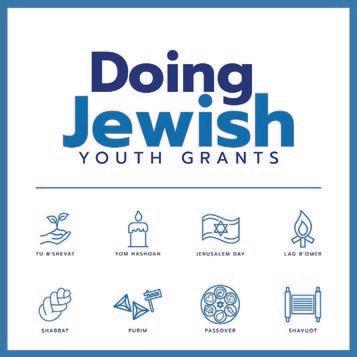
“Doing Jewish” grants will be considered for projects that have a potential impact on strengthening Jewish connections and Jewish identity. Each project should also highlight a Jewish value and be connected to a Jewish holiday that falls within the time period of the grant (now through July 2022). These grants are also available for projects connected to trips to Israel but are not intended for use as day or overnight camp scholarships.
The holidays covered in this grant cycle are
AMERICANO CONTINUED FROM PAGE 4
“Chicanos Por La Causa, true to its mission of empowering people, felt compelled to help elevate this Arizona story to the global stage to encourage new audiences to bring about long-overdue policy change,” said David Adame, Chicanos Por La Causa president & CEO. “‘¡Americano!’ is a reflection of the everyday fight for societal and self-acceptance of many young Arizona Latinos — regardless
Shabbat, Passover, Yom Hashoah, Shavuot, Lag b’Omer and Jerusalem Day. Grants will range from $100-$1,000.
“Judaism is about doing,” said Rabbi Michael Beyo, EVJCC CEO. “It’s about how we live our life and how we impact the lives of others. We hope to inspire teens to want to make an impact in a way that is meaningful to them and in a way that connects to a Jewish holiday.”
Project examples include Shabbat and holiday dinners, community service projects, holiday celebrations, educational projects and more. The project must be completed by July 2022 and the grant recipient is required to share photos or video updates of their project as it progresses and at the project’s conclusion.
Yev Bernstein, parent of grant recipientof their citizenship status.”
Carlos Galindo-Elvira, director of community engagement and partnerships at CPLC, who is also Jewish, said, “This type of community collaboration meets the moment to highlight this important public policy issue. The journey to justice for Dreamers is as relevant in Arizona as ever — as this year an initiative will be on the ballot in November to re-establish in-state tuition. ‘¡Americano!’ is an American story that will now be shared
Edward Bernstein, said, “We are so fortunate to receive financial assistance from the EVJCC for Edward’s life-changing trip to Israel, which will help him to strengthen his Jewish identity.”
For his project, Edward will document his trip and will give an Israel presentation to EVJCC Camp Rimon campers when he returns.
The program collaborates with the B’nai Tzedek Youth Philanthropy Program of the Jewish Community Foundation of Greater Phoenix. “These grants are fantastic incentives that challenge teens to think and program creatively and develop grant-writing skills,” said Andrea Cohen, director of Youth Philanthropy and Community Programs at the Jewish Community Foundation of Greater Phoenix.
“The availability of these grants demonstrate
on the world’s biggest stage, Broadway.”
The reality of “¡Americano!” making it to New York, where he was born and raised, hit Rosenberg when he first saw the billboard on the theater. More of a sports fan, he remembers his mom dragging him to the theater when he was younger. “We saw some incredible shows in their infancy — shows that are now American classics — and I give my mom all the credit for that,” said Rosenberg.
to teens that their Jewish engagement is important and valuable.”
Jennifer Walker, assistant director of Camp Daisy and Harry Stein, assists with this project as a cohort of the Women’s Leadership Institute and is available to assist teens with the application and speak to youth groups in the Valley. JN
For more information, visit evjcc.org/grant.
Rosenberg’s mother died in October 2021 at the age of 107.
“I think about her every day when I’m out here in the city,” said Rosenberg. “I have a smile on my face when I think about the fact that this was a dream of hers and I can say, ‘Hey Ma, we’re here, we made it.’” JN
“¡Americano!” will be at New World Stages at 340 W. 50th St. in New York from March 31 through June 19. Its official opening night is set for April 21. For more information, visit americanothemusical.com.
Have you ever noticed that folks always say the great outdoors? Well, what about the great indoors? Can’t they be great, too?
They sure can. And Maravilla Scottsdale is a perfect example. Some would say it’s about as beautiful as a retirement community can be. But here’s the best part. Maravilla is located smack-dab in the middle of the great outdoors, too. And you can take advantage of it all by joining one (or several) of our many active clubs.

Experience the great indoors AND outdoors for yourself at Maravilla.
Lunch
Join
The great outdoors and the great indoors,all in one.
 AVIVA ENGEL | JTA
AVIVA ENGEL | JTA
Few Jewish grandfathers are still riding a motorcycle at age 65. Even fewer can boast that they have Alice Cooper’s number on speed-dial.
Of course, David Fishof is no ordinary zayde.
The 65-year-old L.A. sports agent and entertainment producer built a storied career promoting such stars as The Monkees and Ringo Starr and NFL greats Phil Simms and Vince Ferragamo.
It’s the stuff of any teen fanboy’s fantasies, but Fishof insists he’s an ordinary guy.
“I’m a legend in my own mind,” he quipped.
He’s also an ordinary guy who helps others live out dreams of their own: Fishof, who is Modern Orthodox, is the founder and CEO of Rock ’n Roll Fantasy Camp, where amateur rockers jam alongside their teen music heroes. Staffed by musicians like Gene Simmons, Alice Cooper, Roger Daltrey and Nancy Wilson, the four-day experience costs about $6,000 (excluding hotel accommodations). It includes jam sessions, rehearsals and performances, an opening-night party and Q&A’s with the celebrated musicians. Master classes, band gear and a video of the final night’s performance are part of the package.
To date, over 5,000 campers — mostly adults — have participated in 69 sessions across the United States since the camp’s launch in 1997.
From “Ellen” to Entertainment Weekly, “The Simpsons” to “Saturday Night Live,” Rock Camp has been widely covered — and parodied — by the media. January 2021 saw the release of “Rock Camp: The Movie,” which chronicles the journeys of four campers who conquer personal challenges while playing with and learning from some of the most famous rock musicians in the world. On Monday, Jew in the City, a nonprofit that aims to change negative perceptions of religious Jews, premiered the film in New York City. The movie will also play at the Toronto Jewish Film Festival, which runs from June 3 to 23.
While Fishof was initially reluctant to star in the film, he ultimately agreed to appear on condition that his Modern Orthodox identity would be highlighted.
“I want to show future generations that they can be successful in the music business or as a sports agent and wear a yarmulke,” he says. “You can live in the normal world and still observe Shabbos and love Israel
and observe kashrus. Having Shabbos to recharge my batteries no matter where I was on the road, whether touring with Ringo or The Monkees, reminded me that I’m a Jew. I believe I’m still doing this at 65 because I’m religious; because I’ve been able to find balance in my life.
“Over the years, I never did drugs or alcohol,” he added. “I overdosed on cholent. A good piece of mandel bread was my weakness.”
Fishof is particularly fond of a scene in the Rock Camp movie that features Queen keyboardist Spike Edney interviewed in front of Fishof’s volumes of Talmud.
“That’s who I am and it was important for me to show where I come from,” he said, noting that he’s actively working on countering Netflix’s “My Unorthodox Life,” about the formerly Orthodox fashion executive Julia Haart. He finds the reality show particularly upsetting due to its “totally false” depiction of Modern Orthodox women.
The son of a Holocaust survivor, Fishof was deeply influenced by his late father’s experiences and heroism during the Shoah. Born in Slovakia, Mark Fishof found solace in music while in Auschwitz and Buchenwald.
“My father sang whenever he could,” said Fishof. “Music saved his life.”
Mark became a cantor upon emigrating to America. Fishof fondly recalled helping out at Temple Beth El, the Orthodoxturned-Conservative synagogue in
Hackensack, N.J., where his father worked for decades.
But it was Mark’s tales of survival that move Fishof to this day.
“My dad told me stories daily, like how in Buchenwald he found an unused cigarette on the floor and traded it for flour to make matzah. There was always half a piece of bread in [our] refrigerator. I asked, ‘Why aren’t you eating it?’ He said, ‘Because I always saved for my next meal.’ Every day I learned lessons from my dad about survival, and that’s a big part of my life. I’m very lucky to have had him as a father,” Fishof said.
“Here I am, a child of a Holocaust survivor, and I could represent a Beatle, and the biggest stars of professional sports and rock and roll. Hitler wasn’t able to destroy us,” he added.
It was Fishof’s dad who actually helped kick start his career. For years, Fishof’s family vacationed at Catskill summer resorts. He worked as a teen waiter and his older brother, Joey, entertained guests with his band, “The Ruach Revival.”
“I wanted to be in it, but I wasn’t good enough,” says Fishof. “My dad said, ‘Why don’t you become an entrepreneur and book the acts?’”
And so began Fishof’s first stint as an entertainment producer for the Borscht Belt. Once he brought in NBA basketball star Julius Erving and the youngsters went gaga.
“When I saw 2,000 kids running up
to Dr. J, I said, ‘This is the business I want to be in!’ That’s when I became a sports agent,” he says, in “Rock Camp: The Movie.”
In the mid-80s, Fishof shifted from professional sports to music, booking tours for such oldies bands as The Turtles and The Monkees — whose lead singer, Davy Jones, was his childhood hero. As a yeshiva student, “The Monkees” was the only TV show his parents let him watch.
From 1989 to 2003, Fishof produced eight “Ringo Starr and His All-Starr Band” tours.
One evening, ahead of the fourth show, the band pranked him: Members threatened to quit as two others were ostensibly brawling in the next room. Fishof was called in to break up the fight. Eventually they revealed it was a gag — but not before a glass was shattered and fake blood was spilled. Luckily for Ringo, Fishof has a sense of humor.
“I said to myself, ‘Wow, these guys are nuts!’” he recounts in the film. “But I realized how much fun they have. That’s how I came up with the idea for Rock ’n Roll Fantasy Camp. I thought, ‘What if I could give this to a fan, to see what it’s like to be with all these rock stars?’”
After more than a year of lockdown, Rock ’n Roll Fantasy Camp is currently in the midst of its first in-person sessions since the start of the pandemic. Until April 3, Rudolf Shenker and Matthias Jabs of Scorpions, along with Sebastian Bach of Skid Row and Zakk Wylde from Ozzy Osbourne’s band, are leading the lineup in Las Vegas.
From May 6-9, an all-women’s camp in Los Angeles will feature Melissa Etheridge, Nancy Wilson, Kathy Valentine and Orianthi.
“My goal with camp is to take people back to that spot in their life where that song meant something; where the artists meant something,” said Fishof. “To bring them happiness and remind them what it was like. To reignite passion in their lives.”
Fishof, who has five children and eight grandchildren, said money was never his goal.
“I believe money will come if you work around your passion. Try to be the best that you can be, and then you’ll be successful. I learned it from these rock stars: They didn’t follow their parents when they told them to get a ‘real’ job. What I’m hoping people will see in the movie is that at any age, you can live your dream.” JN















Netflix. HBO Max. Disney+. Hulu. The world is awash with streaming networks that cater to everyone’s entertainment or educational taste. With so much content floating around the ether, one could get lost in the sea of choice. And although it would seem that more options lead to an endless viewing paradise, the choice can be difficult when it comes down to actually selecting something to watch. Compounding the challenge for the Jewish audience is the lack of robust programming that speaks directly to this demographic (“The Marvelous Mrs. Maisel” notwithstanding).
Cue in ChaiFlicks, a young, up-and-coming curator of Jewish and Israeli streaming content that offers more than a thousand films, documentaries and television series that viewers can choose from. According to the company: “ChaiFlicks has the exclusive rights to the best thrillers, comedies, dramas and television series from Israel and around the world as well as extensive content focusing on Jewish and Israeli culture, heritage and experience.”
And what culture and heritage to experience via streaming! There is so much material to explore that one may be overwhelmed with the choices that the company provides. With a user interface reminiscent of any contemporary digital channel, the feel of ChaiFlicks is slick without being too in your face, relaxed, welcoming and most importantly, easy to navigate.
And though the streaming service provides multilingual offerings for programs that will most likely be unfamiliar to American audiences, it is easy to navigate the way to premium content.

Of note are two programs that are wonderful introductions to the platform for new members. The first is called “Checkout,” which follows the antics of a diverse cast of customers and staff at a struggling supermarket. The situational comedy is a cult hit and on track to become one of the most-watched sitcoms in Israel. In 2021, “The Forward” chose “Checkout” as the number one series of the year. Highly acclaimed, including winning an International Emmy and Best Comedy at the Israeli counterpart to the Academy Awards, the
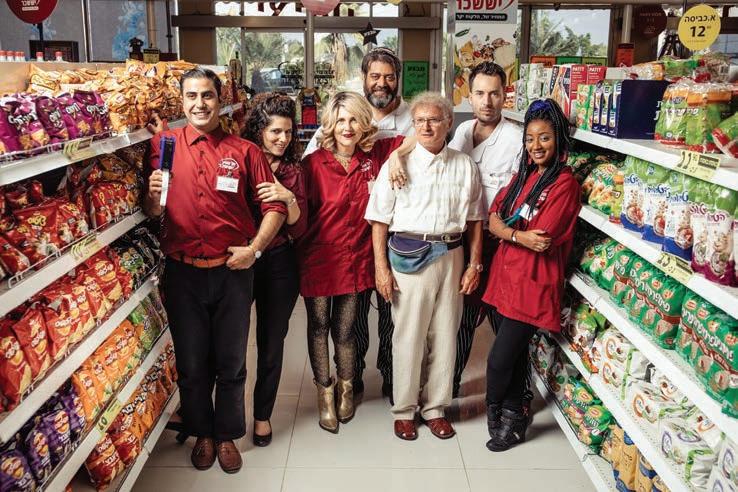
second season of “Checkout” started airing on ChaiFlicks in March 2022.





The other major highlight is the thoughtprovoking “The New Black.” There is no need for orange in this show set in a distinguished yeshiva, which follows the exploits of “four rebellious students as they try to reconcile their desire for modern life with their orthodox upbringings.” For those who may think that the appeal of this show might only be for those who have been through the yeshiva system, that is not the case. The setting is only an invitation into a world that needs more exploration, humor and empathy.
While different in tone and content, both of these shows represent the modern Jewish media landscape: hip, distinguished and in tune with what Jewish audience members crave from their entertainment sources. For those who might be skeptical that such a platform could be sustainable, the quantity (and, of course, the quality) of the programs speak for themselves. And with new pieces of content added regularly on a variety of topics and themes, ChaiFlicks fills a critical need in the Jewish and Israeli media landscape.
As is the case with other streaming networks, there are two ways to access ChaiFlicks. There is a monthly fee of $5.99 or an annual fee of $60 (there is also an option for a free seven-day trial). For the thousands of accessible pieces of media, available on every major streaming device, this is certainly a fair price and on par with well-established platforms.
Does ChaiFlicks stand up well next to its competitors? For a family that wants the option to enjoy the latest in Israeli or Jewish-themed popular culture, then ChaiFlicks is a great addition to the already-burgeoning world of premium streaming platforms.

Indeed, from children’s programs to comedies, serious Holocaust dramas, to “Old Jews Telling Jokes,” there are hours of engaging, wholesome and welcoming content to be found with ChaiFlicks. And even though it is said that Jews are the “People of the Book,” ChaiFlicks makes the case that the Jewish people are well represented in the streaming space. JN
For more information, visit chaiflicks.com.
In our community’s consciousness, Poland, the site of Auschwitz and the Warsaw Ghetto, is the graveyard of the Jews. Like so many other places in Eastern Europe, Jewish life flourished in Poland until it was crushed by antisemitism, unfiltered hate and violence. When World War II broke out, there were 3.3 million Jews in Poland, the second-largest Jewish community in the world. Eighty-five percent were murdered in the Holocaust. The pallor of death and the stories of unimaginable evil haunted our postwar communal perception of the Polish people and their government.
At the end of the Cold War, Poland made a quick turn toward the West. But even with that move we saw a disturbing shift in Poland away from democratic ideals like protection of minorities, and a pronounced move toward populism and authoritarianism. So, it was disappointing but not surprising that Poland’s ruling Law and Justice party eroded the free press, attacked independent courts, molested the LGBTQ community and turned increasingly anti-Europe. And in the process, Poland also poured cold water on its relations will Israel. Just
last August, Poland passed an offensive anti-restitution law that would block Jewish property claims from World War II and the communist era, defying strong opposition from Israel and the United States. We joined many in the West who worried where Poland was headed.
to Poland, more than any other of Ukraine’s neighbors. And Poland has outpaced the United States and Western European countries in sending weapons to Ukraine, in advocating Ukraine’s immediate admittance to the EU, in envisioning a permanent American base
TODAY’S REALITIES FORCE OUR JEWISH MEMORY THROUGH A MIND-BENDING SHIFT IN OUR PERCEPTION OF POLAND — SIMILAR IN MANY RESPECTS TO OUR CHANGING PERCEPTION OF UKRAINE.
Then, in the weeks since Russia invaded Ukraine, Poland shifted again — taking on the mantle of “the West” and “Europe,” and rallying support for Ukraine. Some 2.5 million Ukrainians have escaped
Madeleine Albright, who died last week of cancer at age 84, left a significant legacy. She was the first woman to serve as secretary of state at a time when politics was very much a man’s game, leaving the door open for Condoleezza Rice and Hillary Clinton, who both served in the role after her. She was a refugee and a defender of human rights and democracy. She also came from a Jewish family, a history she said she didn’t know until later in life. It also appears that many of her family members died in the Holocaust.
Albright was born in Czechoslovakia. When she was a toddler, her family fled the Nazis. When she was 11, the family fled the country again, this time from the communists. They settled in Colorado.
Albright studied political science at Wellesley College, then got married and started a family. She earned a Ph.D. in public law and government at Columbia University, where she studied under Zbigniew Brzezinski. She later worked as a congressional liaison for Brzezinski, when he was a
national security adviser in the Carter administration, and served as a foreign policy adviser for Rep. Geraldine Ferraro and Gov. Michael Dukakis. She was also a supporter of Bill Clinton when he was governor of Arkansas. When Clinton was elected president, he named Albright
in Poland of up to 40,000 troops and transferring MiG-29 fighter jets to the Ukrainian air force, something the United States has opposed. Then, last week, Poland’s prime minister, along with the prime ministers of the Czech Republic
In the article, “Arizona women writers share their latest work,” March 25, 2022, Linda Pressman was incorrectly referred to as Lisa Pressman. Phoenix Jewish News regrets this error. JN
and Slovenia, rode a train to Kyiv in a very public effort to bolster Ukraine’s morale. If any country knows what it’s like to be sliced and diced and put out of business by its larger neighbors, it’s Poland. So when Poland sees what Vladimir Putin is doing in Ukraine, it may have a genuine fear that it could be next. But no matter what is driving its actions, Poland now wears a white hat and has reached a new level of international involvement and attention.
Today’s realities force our Jewish memory through a mind-bending shift in our perception of Poland – similar in many respects to our changing perception of Ukraine. But with Poland it’s different, as we see Prime Minister Mateusz Morawiecki, himself an illiberal leader, calling for support against Putin, another illiberal leader. If not for the enormity of Putin’s threat, we might ignore the plea. But we can’t. For now, Poland and Morawiecki are our friends, and enemies of our nemesis. JN
Clinton’s decision not to intervene in the Rwandan genocide. During the Serbian genocide of Bosnian Muslims, she called for airstrikes against Serbian targets, and was successful in getting the Clinton administration involved.
She also played a part in Middle East
WHEN ALBRIGHT WAS IN HER 50S, THE WASHINGTON POST UNCOVERED HER JEWISH PAST. HER PARENTS, WHO HAD BEEN JEWISH, CONVERTED TO CATHOLICISM, PROBABLY TO PROTECT THEIR FAMILY FROM PERSECUTION.
ambassador to the United Nations.
As a diplomat on the world stage — first as ambassador to the U.N., then as secretary of state — she wanted the United States to work with international allies to support human rights. She opposed
peace talks. In 1988, when Clinton was leading peace talks with then-Israeli Prime Minister Benjamin Netanyahu and then-Palestinian leader Yasser Arafat in Wye River, Md., Netanyahu ordered his team to place their suitcases in
front of their cabins as a signal they were leaving. Albright interceded with Yitzhak Mordechai, the Israeli defense minister, and the Israeli team decided to stay. The peace talks led to the Wye River Memorandum to revive the IsraeliPalestinian peace process.
When Albright was in her 50s, The Washington Post uncovered her Jewish past. Her parents, who had been Jewish, converted to Catholicism, probably to protect their family from persecution. Albright was raised Catholic and said she never knew of her Jewish heritage before The Post discovered it. Many in the Jewish community were skeptical of her claim and speculated she was hesitant to come forward about her history because it might jeopardize her political aspirations.
Regardless of her complicated Jewish identity, Albright was someone the Jewish community should be proud of. She broke a glass ceiling for women in politics, prioritized human rights on the world stage and changed the world for the better.
May her memory be a blessing. JN
editor published in the Jewish News are those of the authors. They do not necessarily reflect the views of the officers and boards of the Jewish Community Foundation, Mid-Atlantic Media or the staff of the Jewish News. Letters must respond to content published by the Jewish News and should be a maximum of 200 words. They may be edited for space and clarity. Unsigned letters will not be published. Letters and op-ed submissions should be sent to editor@jewishaz.com.
We are a diverse community. The views expressed in the signed opinion columns and letters to the
 ANDREW SILOW-CARROLL | JTA
ANDREW SILOW-CARROLL | JTA
Philip Roth’s character Alexander Portnoy captured the insecurity of second-generation immigrants in two priceless sentences.
“I was asked by the teacher one day to identify a picture of what I knew perfectly well my mother referred to as a ‘spatula,’” Portnoy complains. “But for the life of me I could not think of the word in English.”
The joke is about a child of immigrants whose parents mix vocabulary from the Old Country into their everyday English, and pity the kid who has to figure out which is which. My parents weren’t immigrants, but I feel his pain. When I was growing up the few Yiddish words that sprinkled their vocabulary had essentially entered the English dictionary. I developed my “Jewish” vocabulary later in life, after time spent in Israel, classrooms, synagogues and in a series of Jewish workspaces.
I’m Portnoy with a difference: I know which words are Yiddish and Hebrew, but I can’t think of the words in English that do as good a job.
This comes up in my work at a Jewish
media company. Journalism has its own specialized vocabulary, with talk of “ledes” and “nut grafs,” “sigs” and “kickers.” But there are also Jewish words for which there are no satisfactory substitutes in the newsroom. Consider “nafke minah,” a Talmudic phrase that means something like, “What is the practical difference?” It’s a useful tool for examining in what ways the thing you are writing about is fresh or different from some other thing, or if it advances
a developing story. It’s a close cousin of “hiddush” (or “chidush,” not to be confused with kiddush), Hebrew for a fresh insight. If something doesn’t pass the nafke minah or hiddush test, it may not be news.
Similarly, “tachlis” (“tachlit” in Modern Hebrew) is indispensable in describing the main or operative point of something. Think of “brass tacks” or “bottom line” in English. I want to use the word whenever I am reading a story with a meandering
opening and am restless to get to the main point, or if I suspect a source is dancing around a subject. It’s the difference between an organization saying “it is our goal to actualize new modalities for young Jews to engage in lasting relationships” and “we are a dating app.”
“Pshat” (rhymes with spot) is the plain meaning of something, stripped of “drash” (rhymes with “wash”), or interpretation. It’s essentially the who, what, where and when without the why. Reporters can be itchy to get to the interpretation of a news event; editors can be cranky in demanding that they first stick to the facts. Just give me the pshat. (Not that I am allergic to drash: It is also the role of journalists to interpret an event or phenomenon for the reader, once they have lined up the facts.)
“Nisht ahin nisht aher” is a Yiddish phrase my father used, meaning “neither here nor there,” or maybe, “neither fish nor fowl.” To me it describes a piece of writing that doesn’t know yet
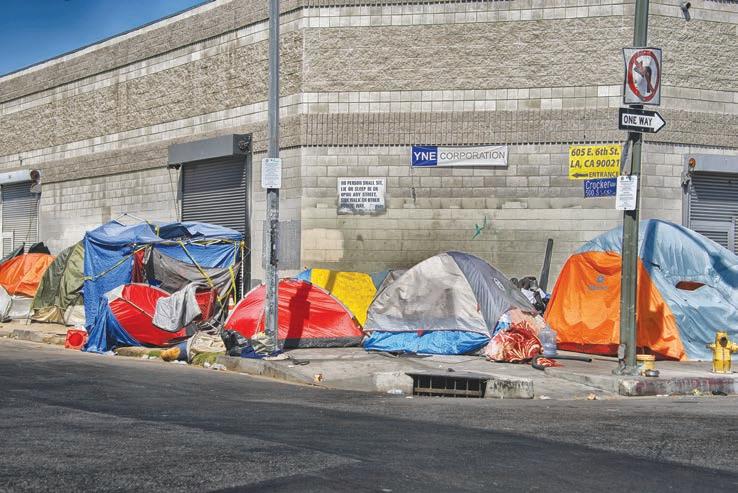 BROOKE WIRTSCHAFTER | JTA
BROOKE WIRTSCHAFTER | JTA
When IKAR, the Jewish spiritual community where I serve as the director of community organizing, realized our long-held dream of buying land in Los Angeles so that we could build a home for ourselves, we invited the community to imagine what we’d like to see included as part of this new physical space. For many of us, and for our leadership, we know that what we build is a physical expression of our core Jewish values.
We knew we wanted our first-ever permanent home to be a hub with a prayer space that would inspire the spirit, classrooms that would facilitate learning, an early childhood center to instill joy, meeting space to foster civic engagement, performance space that will feature artists from around the world, and a cafe that will nurture through food and relationship-building.
But overwhelmingly our community also told us they wanted this: to manifest our values by building homes for some of the tens of thousands of our neighbors who do not have a roof over their heads. So we formed a partnership with a nonprofit housing developer, Community Corp. of Santa Monica, and
started working together on a financial arrangement to share our land and allow them to build a 55-unit permanent supportive housing development for formerly unhoused seniors on our site.
In Los Angeles, as in cities across the country, the price of housing, both to rent and to own, has skyrocketed in recent years, and neither wages nor the pace of building have kept up. As a result, we face a housing crisis of immense proportions, one that is borne most heavily by the people in our cities with the least financial resources: poor people, elderly, people with disabilities, women fleeing
domestic violence, immigrants, and Black people, who have been systematically excluded. All are overrepresented among the unhoused.
Our tradition calls on us to love the stranger, and over and over to remember that we were strangers in the Land of Egypt. We can think of no more important way to do that than to welcome those who have been cast out as “strangers” into homes of their own alongside our new communal home.
And yet, as we began this effort, we’ve learned how difficult it is and why it is so expensive to build affordable housing in cities. While the two partners in our
arrangement are eager to work together and solve problems, we’ve discovered the degree to which zoning regulations drive up costs and create uncertainties that can lead to delays and higher costs in a project like this one.
In California, as in most states, local governments have the power to set all kinds of zoning regulations. That allows them to shape development in ways that may be intended to ensure safety or protect local residents, but which also have a long history of excluding people, especially poor people and people of color, from some neighborhoods, or even whole cities.
One of the rules that impacts us is the local city parking requirement for houses of worship. The rules would require us to build much more parking than we would choose to accommodate our community. Underground parking, which is all we have space for, costs upwards of $60,000 per space and can cost twice that much for each additional deck below ground. We’d rather build less parking and keep the overall cost of the project to a manageable level.
Last year, California passed a bill to make it easier for faith communities to
SEE WIRTSCHAFTER, PAGE 10
PARSHAH TAZRIA
LEVITICUS 12:1-13:59
Isay several prayers just before walking into hospital rooms or before knocking on a door to visit a sick person who is able to be in their home. I pray for their wellness (either a full recovery or a feeling of wholeness on their journey) and I pray that their family may find strength on their loved one’s journey.
I also pray for my own strength to be fully present as I know their new life-altering diagnosis means that their daily activities have become focused on visiting doctors, receiving treatment, and dealing with insurance companies … especially as I know their social circles and the emotional support they have experienced throughout their lives will almost certainly diminish with their new diagnosis.
In this week’s Torah portion, Tazria
SILOW-CARROLL
CONTINUED FROM PAGE 9
what it wants to be. Is this a profile of a bagel-maker or a story about the inexplicable popularity of the cinnamon raisin variety?
I polled my colleagues for the Jewish vocabulary they either use only in Jewish settings, or wish they could use outside the bubble. There were the untranslatable usual suspects like “davka” and “mamash” and “stam” and that Swiss Army knife of interjections, “nu.”
Which is not to suggest that my colleagues share a vocabulary or frames of reference, Jewish or otherwise. Hebrew Union College’s Sarah Bunin Benor studies the language of contemporary American Jews and has written about the ways their vocabulary tracks with their Jewish biographies: the older Jews steeped in Yiddishisms, younger Jews who have brought more Hebrew into the JewishEnglish vocabulary, devout Jews who speak a Hebrew/Yiddish/Aramaic patois known as Yeshivish. There are proud Jews who have very little “Jewish” in their language and “insiders,” like me, who slip in and out of different Jewish skins depending on their audience.
And Benor’s latest project, tracking historical and living Jewish languages, demonstrates the linguistic diversity of the Jews beyond Ashkenazi Europe. (Benor’s side project, the indispensable
(Leviticus 13:5) teaches us that if a priest identifies a white discoloration on someone’s skin (and the hair in that area has not turned white), “the priest shall isolate the affected person for seven days.” In this verse, the Hebrew word v’heesgeer is often translated as “isolate,” can also be translated as “to shut up” or “to imprison.” (Additionally, this period of isolation might have been renewed upon later examination by the priest.)
Each of us now better understands the impact of isolation much differently after two-plus years of COVID. So many of us felt imprisoned in our homes, not by our choice. We felt the loss of not being able to celebrate with family and friends. Our lives were disrupted beyond imagination and, now, as we return to pre-pandemic activities, many of us are starting to forget (or maybe blocking out) how social isolation made us feel.
I have been told by those living with chronic illness that the pandemic gave others a small taste of what living with chronic illness is like. And yet so many of these individuals will not experience the re-entry and feelings of renewal so many
of us are blessed to be experiencing. Their isolation continues.
When thinking about Tazria, we must remember that the priest not only was responsible for isolating individuals, but he also had the important role of helping people return to the community. Now, as we no longer have priests and can interpret our obligation to be “a kingdom of priests and a holy nation” (Exodus 19:6), we are all responsible for the honorable task of returning people to meaningful roles within society, both within our sacred communities and the world at large.
How do we prioritize and ensure that everyone in our community is supported throughout illness, particularly those chronic/progressive illness? Unless illness occurs to us (or someone in our family), unfortunately, our own busyness sometimes causes us to forget that, in the end, we are truly all on the same path — seeking dignity and belonging in our most vulnerable times.
As a rabbi (and especially one new to the community), I need to continually ask who is missing from our community?
WIRTSCHAFTER
CONTINUED FROM PAGE 9
Jewish-English Lexicon, introduced me to the Ladino gesundheit: “Bivas, kreskas, enfloreskas!” [“Live, grow, thrive!”])
Because of that variety of experiences and influences, I am hesitant to inflict my Jewish vocabulary on my colleagues – or, for that matter, on our readers. It is a challenge for anyone working in ethnic or specialized media: How much jargon do you use? In our case, do we use or need to explain words like shul, shiva, haredi or havurah? Is too much untranslated and unexplained specialty language just one more barrier to readers accessing not just our Jewish news sites but Jewish life as a whole?
Or, if you get too “explainy,” do you sacrifice your own credibility — and perhaps come off as patronizing to your readers?
The trick is hitting on a vocabulary that flatters the intelligence of readers without leaving them behind or on the outside — which, I might add, should probably be the guiding principle of any journalism enterprise, and any Jewish organization or institution, that wants to remain relevant. Otherwise, bishvil ma litroakh? JN
build housing on existing parking lots. That law allows houses of worship to remove up to 50 percent of their parking spaces if they replaced them with affordable housing. Now, we are proud to sponsor a bill with Assembly Member Buffy Wicks to extend that flexibility to congregations that are building ground-up projects. Our bill, CA AB 2244, would excuse faith communities from up to 50% of their locally zoned parking requirements if they build affordable housing onsite at the same time. The bill would not reduce the required number of ADA parking spaces or electric vehicle charging spaces.
For us, this is a matter of justice and equity, and of building our values into the DNA and architecture of our community. We want to open our home to people without homes, and reduce our reliance on private cars as a mode of transportation. We hope this bill will make it easier for and even inspire other faith communities in the state to build housing.
Jewish and other faith communities can and should do more to address the systemic housing crisis that is driving hundreds of thousands of our neighbors onto the streets and millions more into financially precarious and unstable living situations. The scale of the problem and the obstacles to confronting us, however, sometimes keep us from dreaming big. We
SHABBAT ENDS
APR. 2 - 7:27 P.M.
APR. 9 - 7:32 P.M.
Find area congregations at jewishaz.com, where you can also find our 2022 Community Directory.
Who needs to be invited back in? How can we prioritize multi-access participation so those at home can participate in a meaningful way? How can we connect new members of our community and re-connect those who are isolated within our community?
Responding to these questions are the obligation of the entire community and when we fail to be intentional about inclusion and welcoming those back from isolation, the community misses out on the richness these individuals can bring. And so I ask: Who can you reach out to right now?
Make a call, send an email. Give the gift of human connection.
I promise you won’t regret it. JN
Rabbi Cookie Lea Olshein is the senior rabbi of Temple Emanuel of Tempe.

have the motivation; IKAR’s experience shows we also need to unleash the resources and the human capital to overcome the economic, policy and political hurdles in our own backyards. Right here in California, a recent UC Berkeley Terner Center study shows the tremendous potential for developing religious land for affordable housing.
Abraham was known for his tremendous concern for offering welcome to strangers. We can follow his example by using our land to offer welcome to our neighbors too.
All faiths teach the importance of hospitality and valuing the dignity of each human life. Building more homes for people and fewer spaces for cars at our houses of worship is one way we can help realize that shared vision for a society that centers human dignity and moves toward cities that are easier to navigate without a car. I envision a future in which our community gathers for prayer in our new home, heartened by the connection to our new neighbors, who are enjoying some measure of peace and security in their new homes as well. JN
The views and opinions expressed in this article are those of the author and do not necessarily reflect the views of JTA or its parent company, 70 Faces Media.
The pungent kick of horseradish on a fresh crisp sheet of matzah. The tender mouthfeel of a feather-light kneidel, moist with savory chicken soup. Umami-rich brisket, braised low and slow, dotted with molasses-y prunes and plumped, tart dried apricots. No Jewish holiday table inspires such positive food associations as Passover, and for so many of us, this will be our first taste of a full-on Pesach feast since the pandemic began.
But for the many who had COVID-19 and, with it, experienced sudden-onset smell loss, this could be a particularly emotional and challenging event: How to navigate a beloved holiday meal when you’re unable to perceive the essence of food’s flavor? It can feel like trying to navigate a desert. Alone.




But as someone who’s experienced smell loss first hand (non-COVID
respiratory infection, and I eventually recovered), I know that traditions have a particular power, that holiday-food memories and their emotional impact are actually assets that support sensory perception.
A first step in leveraging that asset is to galvanize the senses that are still intact. Focusing attention on the possibilities of what this sensory stimulation can help bring about is in keeping with Passover as the feast of freedom.
Our sense of taste registers the sensations of sweet, sour, salty, bitter and umami, as distinguished by the taste buds on our tongues. The seder table pops with ingredients that stimulate these tastes. Reach no farther than that bowl of classic charoset, which handily incorporates all five discreet tastes in a single dish: Sweet honey; sweet and tart apples and dried
fruit; slightly bitter walnuts, almonds and tannic red wine; savory walnuts; salt as seasoning.
We vividly experience charoset through our sense of touch and mouthfeel, exploring all these ingredients through contrasting textures and shapes. In fact, part of what makes that family recipe you grew up on so familiar and recognizable is how it feels in your mouth when you take a bite.
And then there’s our trigeminal nerve in the nasal cavity that reacts to so many aromatic spices, and is responsible for our perceiving charoset’s cinnamon and

clove as warm. But when it comes to trigeminal sensation’s prominent role in our appreciation of the Passover meal, there’s no more dramatic example than our experience of horseradish’s pungent fire.
Matzah, perhaps more than any other seder ingredient, speaks to how traditions and holiday-food memories positively influence our experience of food in the absence of flavor. It explains the anticipation and excitement of pulling a stack of smooth white sheets from the

Please reserve orders of 6 of more by April 12th
• Roasted Pistachio Crusted Chicken Breast with Rustic Apple Compote $ 1699 per person
• Tender Braised Beef Brisket with Natural Root Vegetables Au Jus $ 1899 per person

• Grilled Salmon served with Herb Carrot Orange Zest $2299 per person
*Dinners Do Not Include Matzo Ball Soup
Check with your AJ’s for availability of
• Potato Pancakes • Matzo Ball Soup
• Apple-Nut Charoset • Kugel
Center-Cut Beef Brisket $ 1199 per lb Save $ 2
Price valid April 1 - 19, 2022
Complimentary Seder Bones available while supplies last.
HILLEL SANDWICH CONTINUED FROM PAGE 12

box, at the sound of the snap they make along those clean, perforated lines, and our true affection for that otherwise dry and crunchy, tasteless cracker.
The Hillel Sandwich, or Korech — charoset, horseradish and matzah — is where all these elements of our flavor

system come together. We’re no doubt drawn to this ritual food because of the confluence of so many sensations all in one bite. This odd and otherwise funnylooking food points to our powerful drive to make meaning of what we’re eating through our senses. For those who are


Makes about 4 cups | Prep time: 15 minutes | Cook time: 15 minutes Ingredients
4 apples (about 1¼ pounds), preferably a multi-colored assortment of Granny Smith, McIntosh, Golden Delicious and Macoun

2 tablespoons grated lemon zest
2 tablespoons lemon juice
1 tablespoon granulated sugar
1 teaspoon vegetable oil

1 teaspoon ground cinnamon
¼ teaspoon ground cloves
¼ cup honey
1 tablespoon plus 1 teaspoon apple cider vinegar
½ cup red wine
8 ounces walnut pieces, coarsely ground or finely chopped
4 ounce golden raisins, chopped
Salt and freshly ground pepper
Matzah


Prepared horseradish
Directions


1. Core and finely chop the apples and transfer to a mixing bowl. Toss with the lemon juice, zest and granulated sugar. Toss the mixture occasionally while you complete the next steps. (Tip: The apples can macerate, refrigerated, for up to 36 hours.)
2. Heat the oil in a heavy saucepan over low heat. Add the cinnamon and cloves, and toast, about 1 minute. Add the honey, raise the heat
to medium and simmer, stirring frequently, about 3 minutes.
3. Pull the saucepan off the heat and add the vinegar, which will come to a simmer quickly. Return the pan to medium heat and simmer, stirring for about a minute. Add the wine, stirring to incorporate, and let simmer, stirring frequently, until the mixture has thickened to the consistency of syrup, 6 to 10 minutes; cool.
struggling with smell loss, hungry to access an experience of flavor, reach for the trove of food memories and emotions you have to draw from, along with those senses that are still intact. They’re your own custom-made keys to connecting to the pleasure of Passover’s table.
4. Stir in the walnuts and raisins to the apple mixture. Add the honey-wine reduction and toss to dress; season with the salt and pepper. Serve on matzah topped with horseradish, open face or sandwiched. JN


Leah Holzel is a smell-training coach, food writer and recipe developer specializing in culinary design for smell-loss. She’s the author of an upcoming cookbook for eaters with smell disorders.

Suppose you want to see the type of plant — a bulrush — from which Moses’ mother made the basket she put him in as an infant to save his life and touch off the ancient Passover story. In that case, you need only take a tour of Congregation Beth Israel’s Evanne Copland Kofman Biblical Garden.
The oldest synagogue in Phoenix, Congregation Beth Israel (CBI), was founded in 1920 at Second and Culver Streets, moved to 10th Avenue and Flower Street in 1948 and to its present location at 10460 N. 56th St. in Scottsdale in 1997. The idea of the biblical garden came up at that time, longtime garden docents Donna Harris and Beth Waldinger said.
The 20-something-year-old garden recently got a signage upgrade at the beginning of February 2022. The new signs include the plant’s familiar name, its name in Hebrew and transliterated, along with its scientific name and a Bible verse in which it appears.
“We spent hours and hours researching those signs,” Harris said.
The new signs replaced the old ones that were faded or broken and they did not contain the name most people would know the plant by, said the docents. Also, some of the Bible references were wrong or not as appropriate as other choices.
Docents and caretakers of the garden since 2012, the women replaced Dr. Richard Zonnis, who founded the garden and curated it for more than a decade.
In spring, the biblical garden area behind the synagogue is blooming with many plants that figure prominently in the Passover story, including some that one might find on their seder table. These include grapes, for the wine; figs, included in some traditional charoset recipes; and the senna plant, which is believed to be the type of bush Moses saw burning but not being
consumed on Mount Sinai.
Besides making baskets from the bulrushes, those and similar wetland reeds were also used to make papyrus, an early form of paper, sandals, hats and other useful items.
A path through the garden is paved with uneven stones in the manner the early Israelites would have found familiar. Some examples of the more than 125 plants mentioned at least once in the Bible are in the garden. These include an acacia tree, the type that supplied the wood for the Holy Ark and is said to possess “sanitary properties,” aloe plants and citron and myrtle, two plants used during the festival of Sukkot.

There are also date palms and other trees, including Aleppo pine, cypress, olive tree, pistachio, pomegranate, sycamore and terebinth. The terebinth is mentioned in Genesis 33:4 as producing the sap from which the “Balm of Gilead” is made. It is also used to make perfume.
There are also a slew of biblical bushes, including henna, hyssop, laurel, oleander and Phoenician roses. “There are between 20 and 25 plants in the CBI garden at any given time,” Waldinger said.
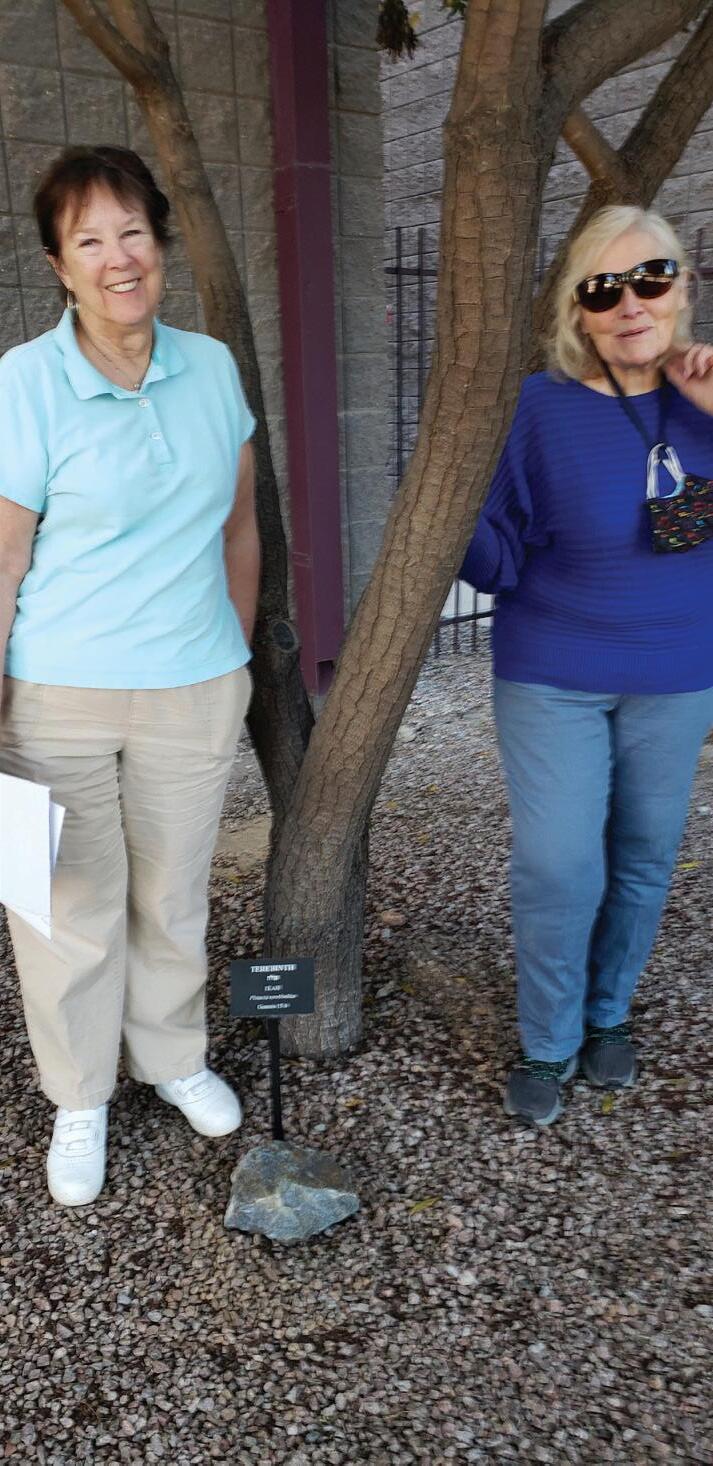
Ebony, of which an example grows in the CBI garden, is the only wood that doesn’t float but polishes up beautifully. There’s a carob tree with edible pods and its seeds, being mostly uniform in size, were used as a measurement when precision was needed. The term for the gold measurement karat comes from the Greek word “keration,” which means “fruit of the carob.”
“There’s a story about an old man planting a carob tree and people asked him why he was bothering when it takes so many years for such a tree to produce fruit and he’d be long gone by then,” Harris said. “But the old man said that was OK because his grandchildren will
be around to enjoy it. It was about paying it forward.”
A water feature in the middle of the garden represents “an oasis where travelers, camels and other animals would have found water and respite in the desert,” Waldinger shared, adding there had been a pond but it was removed.
Tours of the biblical garden are given to children, congregations, women’s groups and other interested parties. “It’s not there for beauty, but for shelter, medicinal uses, herbs and food,” Harris said. “We’re kind of proud of it.” JN
For more information, visit cbiaz.org
Rachel Raskin-Zrihen is a freelance writer living in Anthem.



 MALA BLOMQUIST | MANAGING EDITOR
MALA BLOMQUIST | MANAGING EDITOR



Our surgeons are specialty trained in minimally invasive surgical and arthroscopic (keyhole) techniques. These techniques provide smaller incision sites, less tissue aggravation, and faster recovery times. Our orthopedic specialist treats knee and shoulder pain conditions. Our spine specialists treat neck and back pain conditions. We are contracted with most health insurances, please call the number below to inquire more.

There is a Passover tradition in the Greater Phoenix area that has been going on for more than three decades — the annual Passover Food Drive. This year, through the combined efforts of the Bureau of Jewish Education of Greater Phoenix (BJE), Jewish Family and Children’s Service (JFCS), Ezras Cholim Kosher Food Bank, Jewish Free Loan and Jewish schools, Passover food will be delivered to more than
Campus, enabling anyone who wants to donate to “drive up and drop off” outside the building. The JFCS office is also accepting donations at their location at 4747 N. Seventh St. #100 in Phoenix.
Items needed include matzah, gefilte fish, wine and grape juice, matzah ball and soup mix, candy, cookies and cake mixes. All products must be in a sealed container and designated “kosher for Passover.”




220 elderly or needy households throughout the Greater Phoenix area. This year, prices of the food needed to prepare the seder are higher than in previous years. According to the U.S. Department of Agriculture Economic Research Service’s summary findings, the February 2022 consumer price index for “food-at-home,” food purchased at a grocery store or supermarket, was 8.6% higher than in February 2021.
“For more than 30 years, the BJE and JFCS have led the charge to distribute Passover food to those in need, especially the elderly on fixed incomes, to help ease the burden and provide food for a dignified seder,” said Myra Shindler, BJE’s executive director.

Donation boxes to collect Passover food are set up outside at the front of the Ina Levine Jewish Community
All food donations are being accepted through Thursday, April 7.
In addition to packaged food supplies, cash donations are needed to provide fresh meat and produce. Checks sent to the BJE will be used to purchase whole chickens and supplement the food collected in the drop-off boxes. Donations made to the JFCS will be used to purchase fresh vegetables.

Volunteers from JFCS and teen volunteers from BJE’s Hebrew High of Greater Phoenix will distribute the food boxes. “I know when I have personally delivered to homes, the people who come to the door are so grateful; it warms my heart,” said Shindler. She admits that the greatest impact is often felt by the volunteers.
For more information or to donate, visit bjephoenix.org or jfcsaz.org.
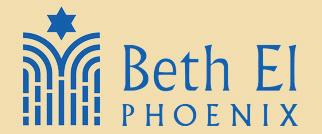
Billionaire philanthropist MacKenzie Scott has donated $10 million to the Jewish humanitarian group HIAS for its work aiding refugees fleeing the war in Ukraine.
HIAS announced the gift Wednesday, March 23, as Scott, the ex-wife of Amazon CEO Jeff Bezos, revealed her latest multi-billion-dollar round of charitable giving. She gave $3.8 billion to 465 organizations in this round, bringing her total philanthropic funding to $12 billion.

The HIAS grant will go toward humanitarian relief for refugees from Ukraine and help with resettlement in the countries of the European Union. Services provided to refugees by HIAS’s local partners include housing, education, health, language training and mental health with an emphasis on reducing gender-based risks for those who have been displaced by the war.
Some of the money will also help Jews from countries bordering Ukraine relocate to Western Europe, according to HIAS.
The news of Scott’s donation comes a few days after Prince Harry and Meghan Markle announced they have given an undisclosed sum to HIAS to help Ukrainian refugees. Far more money has flowed to HIAS in recent weeks than what the nonprofit sees over the course of a typical quarter, the Forward reported.
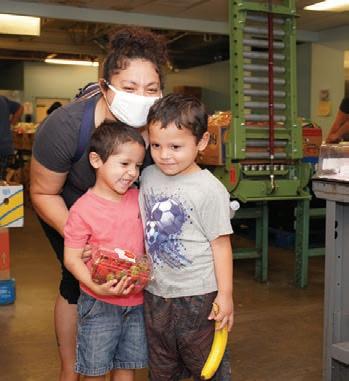
HIAS, formerly the Hebrew Immigrant Aid Society, traces its origin to the late 19th century when millions of Jews migrating out of Eastern Europe required aid. In recent years, with few Jews impacted by the world’s new refugee crises, HIAS transformed into a humanitarian advocacy group for all displaced people.
After the fall of the Soviet Union, for
example, HIAS built up a presence in Ukraine and established a local partner called Right to Protection, or R2P.
Now, HIAS says that its experience and infrastructure are proving to be critical.
“HIAS has been working in independent Ukraine for over 20 years, working with Ukrainians and launching a Ukrainianled organization (Right to Protection – R2P) to protect and welcome asylum seekers from other countries as well as displaced Ukrainians themselves,” HIAS president and CEO Mark Hetfield said the statement that announced Scott’s gift.
“Today, we are working with partners — many of whom are displaced persons themselves — to help refugees and the displaced be safe, welcome, and able to lead their lives until they can finally return home.”
Scott, who is now married to Seattle science teacher Dan Jewett and whose net worth is estimated at $55 billion, has contributed to HIAS in the past. Last year, she gave HIAS an undisclosed sum along with gifts to two other Jewish nonprofits as a part of a $2.7 billion funding round for 286 organizations. JN

“HIAS HAS BEEN WORKING IN INDEPENDENT UKRAINE FOR OVER 20 YEARS, WORKING WITH UKRAINIANS AND LAUNCHING A UKRAINIAN-LED ORGANIZATION (RIGHT TO PROTECTION – R2P) TO PROTECT AND WELCOME ASYLUM SEEKERS FROM OTHER COUNTRIES AS WELL AS DISPLACED UKRAINIANS THEMSELVES,”
HIAS PRESIDENT AND CEO MARK HETFIELDMALA BLOMQUIST | MANAGING EDITOR
Finances have been on everyone’s mind lately. From gas prices to child care to purchasing or renting a home, inflation poses challenges for individuals of a diverse range of economic backgrounds.
The annual inflation rate for the United States is 7.9% for the 12 months ending February 2022 — the highest since January 1982 — and after rising 7.5% previously, according to U.S. Bureau of Labor Statistics data published March 10. The next inflation update is scheduled for release on April 12 and it will offer the rate of inflation over the 12 months ending March 2022.
Whether finances have been on the top of your mind or not, there is no better time than the month of April (which happens to be Financial Literacy Month) to reflect on your financial health, including your charitable giving habits.

Financial Literacy Month’s beginnings go back more than two decades. The campaign began as Youth Financial
Literacy Day, first introduced by the National Endowment for Financial Education. The event’s name was eventually changed to Financial Literacy Month and in 2004, the Senate passed a resolution to officially recognize April as Financial Literacy Month.
In 2003, the U.S. Department of the Treasury’s Financial Literacy and Education Commission developed a national financial education website (mymoney.gov) with resources and information, including “My Money Five,” the five building blocks for managing and growing your money.
These five building blocks are: earn, save and invest, protect, spend and borrow. Jewish Free Loan (JFL) is a charitable organization that can assist in several of these areas, according to Ellen Friedman Sacks, executive director of Jewish Free Loan in Phoenix.
Starting with the principle of “borrow” — if you are in the market for a loan,
JFL can help. “We offer a secure online application process, confidential interview and individualized re-payment schedules,” said Friedman Sacks. “Most importantly, we are a nonprofit and all our loans are completely interest-free.”
When you utilize an interest-free loan, compared to taking a traditional, interestbearing loan from a financial institution, you may “save” as much as 36%. (Personal loan interest rates can range from 6% to 36% depending on the lender and the borrower’s credit score and financial history, as reported by Experian.) When you don’t have to pay interest, you are able to better “invest” that savings to help you reach your long-term goals and immediate needs, said Friedman Sacks.
“If you find yourself in a financially secure place and in a position to ‘spend,’ JFL can help with that too,” said Friedman Sacks. JFL is a registered nonprofit and a Qualified Charitable Organization of the Arizona Charitable Tax Credit (AZ
CTC). This means that you can get a dollar-for-dollar tax credit when you donate to JFL or any AZ CTC-eligible organization (a complete list of these organizations can be found at azdor.gov/ tax-credits). The AZ CTC limit is $400 for an individual return and $800 for couples filing jointly. Please consult your tax advisor for more information.
Thinking in terms of financial literacy, the AZ CTC not only puts you in a position to better “protect” what you already have, but it allows you to help “protect” your fellow community members by supporting important resources.
“Invest” in your financial health by investing in the community and you will be well on your way to achieving the five building blocks of financial literacy this April. JN
Jewish Free Loan provides interest-free loans to Arizona’s Jewish community. For more information, contact 602-230-7983 or email info@ jewishfreeloan.org.
Denise and Eric Kaye, owners of Connections In Home Care and Connections In Communities, will offer their expertise at “Ask the Senior Care Experts,” at the Valley of the Sun Jewish Community Center on Tuesday, April 5, from 10 a.m. until noon.


According to the U.S. Census Bureau, there are about 52 million people in the United States who are age 65 or older. This demographic is projected to almost double in size to 95 million people by 2060.

If you have questions or concerns about aging in place, finding the right assisted living environment, long-term care insurance, financial aspects of in-home care or assisted living or need proactive planning ideas for aging in place at home, the Kayes can provide answers during the free, 15-minute consultations.
Denise Kaye said that they wanted to set up this time for people to meet with them in a private and personal atmosphere to handle what can be an uncomfortable conversation.
“We are all going to get old and we are all aging. A lot of times, people in their

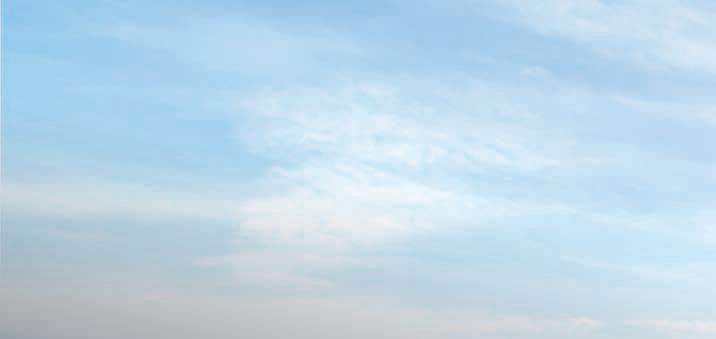
late 40s and early 50s are dealing with loved ones — an aunt, uncle or parents — and then we have to figure out the plan,” said Kaye. “And it’s usually a lot of reacting instead of being proactive. Then I’ll say, ‘Now that you’ve gone through this experience, what are you going to do differently for yourself?’”
She said it all comes down to planning. Figuring out what the costs are today and what they will be down the road. “I feel like when people are getting ready to retire this should be part of that conversation and I don’t know if it always is,” said Kaye.
Last year, the Kaye’s expanded their business to include Connections In Communities, a free service that helps seniors find the best community to fit their needs.
“We are a placement agency now, so I feel like I can help everyone. I find joy in that,” said Kaye. “In-home care is a luxury — you either have a long-term care policy or you have money.” There’s no cost to the family for the Kayes to take them to look at assisted living communities; the facility pays them upon placement.
more care, they can move to a residential assisted living facility or community.
If you want to age in place in your home, there are plenty of resources to make your home safer as you age such as grab bars in the bathroom or filling in that sunken living room from the 70s to avoid falls. “You have to get your house ready to age in place, if that’s where you want to stay,” said Kaye.
She stresses that having a plan in place is important so that the burden does not fall on your children. When faced with having to find care for their parents, many children have no idea what their parents’ financial situation is or what their wishes
said Kaye.
She continues, “You want to empower people while they have the cognitive ability — something happens in your 70s and 80s, you start losing that self-awareness.”
Kaye said she heard a statistic on the radio that many seniors will die of neglect. “I thought, ‘What can we do?’” she said. “We want to give our time back to the community we love; we believe in tikkun olam and that’s what we do by caring for the older adults in our community.”
To schedule your free consultation, contact Andrea Quen at 480-481-1753 or andreaq@vosjcc.org.


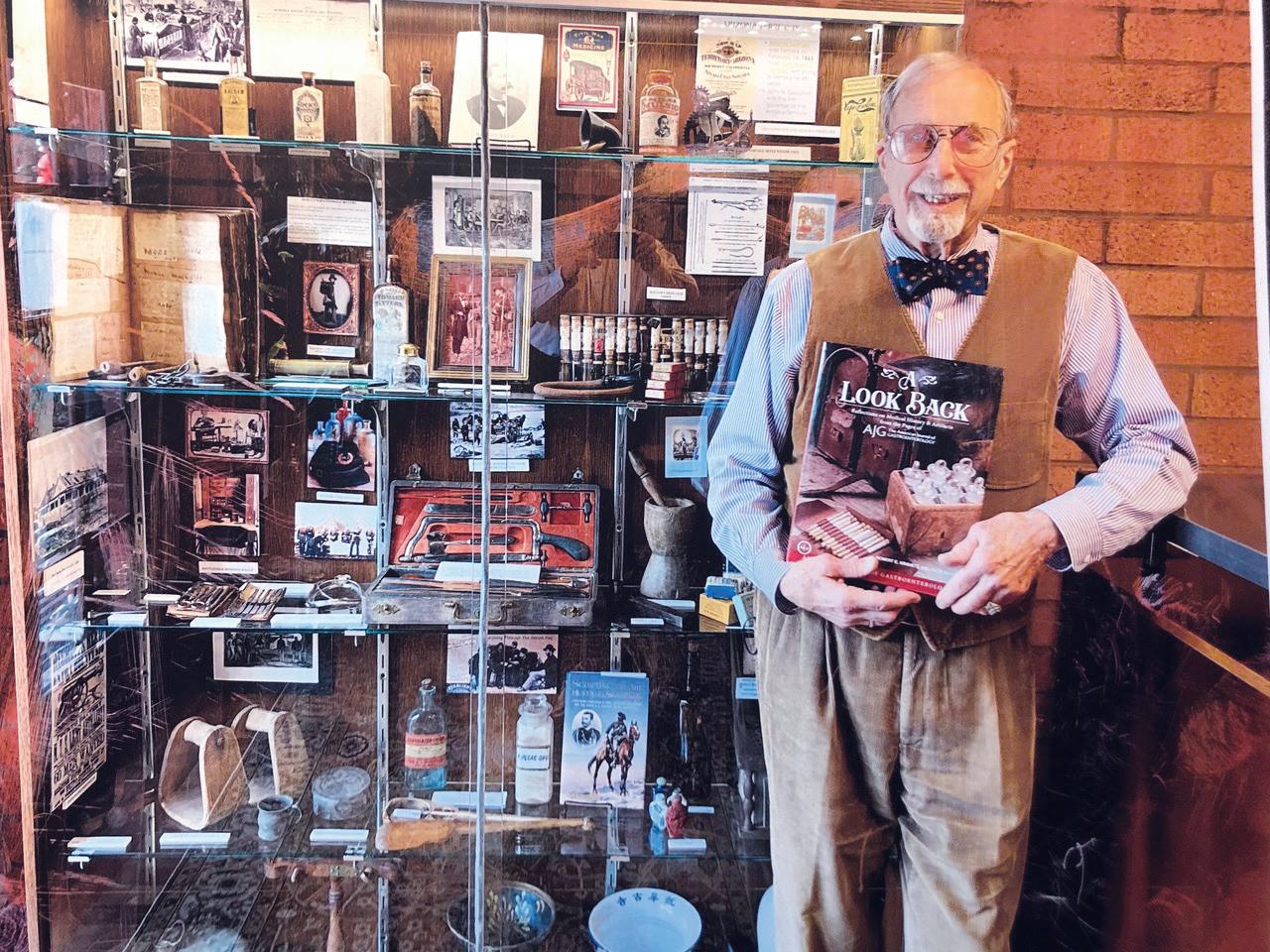

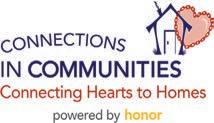
 ELYSE HORVATH
ELYSE HORVATH
Dr. Carl Sagan famously stated, “You have to know the past to understand the present.” Any student of history will agree with this philosophy and Dr. Robert Kravetz is no exception. Kravetz has punctuated his life’s work in medicine with a strong embrace of medical history.
Kravetz has spent 50 years immersed in the field of medicine. Following a successful career as a respected gastroenterologist, he has taught medical students, donated his time to numerous organizations and written several books on medical history. His most recent book, “A Look Back: Reflections on Medical History & Artifacts from the Pages of The American Journal of Gastroenterology,” is described as a coffee table-style book about medical artifacts. But he may be best known for the vast collection of medical antiques he writes about — an impressive fifty cases grace the halls of hospitals, medical campuses and doctors’ offices in and around Phoenix.
His love for history was born during his high school years and transformed into a

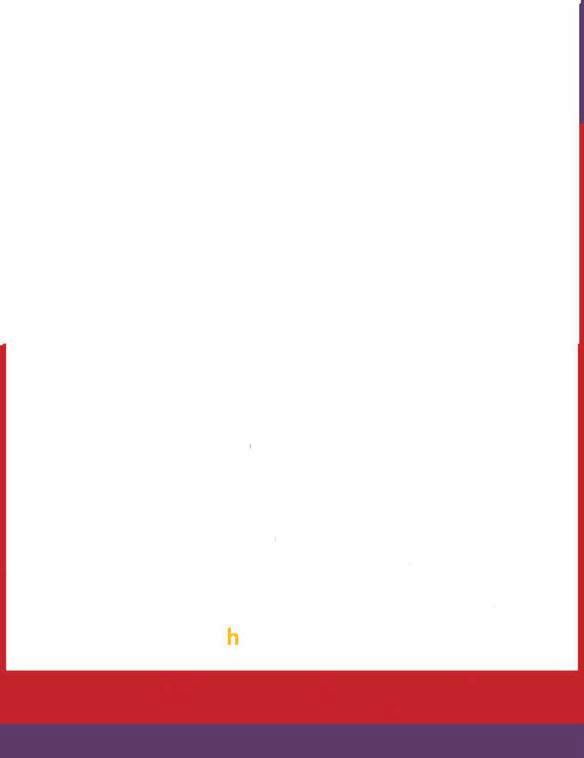

passion for medical history as he began to study medicine. In 1970, he found himself excitedly purchasing an antique toothpaste jar for 25 cents. At once, he became fascinated with the historical value of the artifact, which he once sold but quickly purchased back because of its sentimental value.
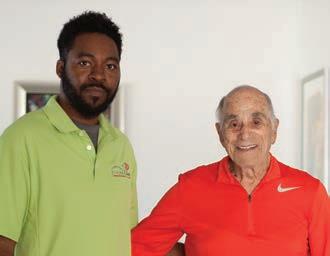
Kravetz has since curated one of the most impressive collections of medical artifacts in the United States. “I have 35 cases of antiques in different locations,” he said. “At the medical school, I have my main museum which I just put in. I have 14 cases there. There’s only one other medical museum west of the Mississippi and that’s in San Francisco.” The Robert Kravetz, MD Medical Museum is located at the University of Arizona (UA) College of Medicine-Phoenix campus.
With these artifacts, Kravetz brings into view wonders of innovation in the historical treatment of the human form. His now vast collection graces the halls of institutions which he has also impacted professionally. His collections can be found at the UA College of

Medicine-Phoenix, where he teaches; Phoenix Baptist Hospital, where he once practiced; and Encompass Health Corporation, where one of his sons is medical director. He gifts his fourth-year bioethics students with their first medical antique, hoping to continue his legacy of learning from the past with the next generation of physicians.
The most important part of collecting for Kravetz is that his finds are accessible to the public. “If you have a collection,” he states, “it doesn’t do any good unless it can be displayed and shared with other people. My philosophy is, if you’ve been successful, had a good life and done well, it is implicit upon you to give back to your community.” So give back he does, and not only with his antiques. Kravetz gives his time and expertise to numerous organizations in the medical community as well as the Jewish community. He has served as president of the Board of Jewish Education of Greater Phoenix. Currently, he sits on the board of the Arizona Jewish Historical Society and the executive board of The Maimonides Society.
Kravetz will turn 89 this year. As the oldest faculty member at the UA, he maintains that he doesn’t consider himself old, nor does he intend to slow down. He remains active as a clinical professor of medicine in the Department
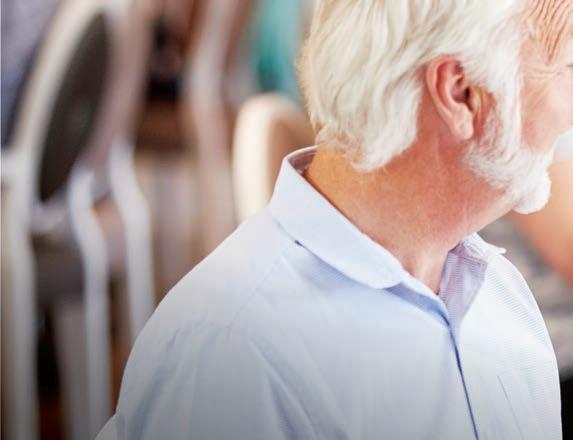
of Internal Medicine and the Department of Bioethics and Humanism. Additionally, now that the UA is developing a master’s program in bioethics, he is preparing a syllabus to teach a course on the History of Medical Ethics.
enthusiasm for life as an accomplished artist. The couple is grateful for their three sons who all live close by and remain very connected.
in the present. They call it the present because it’s a gift but some people never open it.” JN
For his part, Kravetz is enjoying his current place in time, with a deep understanding of what matters most. He counts his blessings, starting with 64 years married to his wife Nancy, who shares his

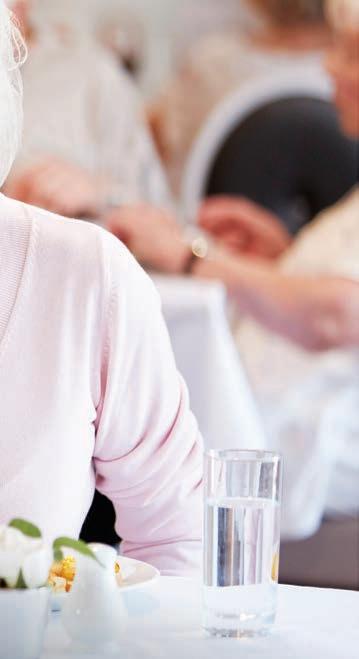


“We’re a very close family; that’s another important thing,” he said. “People tend to live in one of three places. A lot of people tend to live in the past with regrets, a lot of people tend to live in the future of ‘what if’ and my philosophy is that you should live




The Robert Kravetz, MD Medical Museum is located inside the University of Arizona College of Medicine-Phoenix campus at 475 N. Fifth St. in Phoenix. For more information, visit phoenixmed.arizona.edu.
Elyse Horvath is an entrepreneur and freelance writer living in Scottsdale.


So, what is next?
If we just start with the year 2020, we as a country and world have experienced a decade, if not a century, of challenges and sorrow in just two short years.
Civil unrest and divisiveness were occurring in the streets of our major metropolitan cities, in the halls of congress and then it spilled over into a very contentious presidential election. While all of this was going on, at the end of 2019 there was a pandemic brewing in China that had already spread to Northern Italy and no one could have imagined the impact this would have on humanity and what seemed to be our normal way of life. The outbreak had its early beginnings in Kirkland, Wash., San Francisco, Calif., and New York City and then in a matter of days, it was everywhere. As the pandemic began to spread like wildfire, you may recall a real wildfire was occurring in Australia where millions of acres were scorched and more than three billion animals displaced; the fires burned to the end of January 2020

— does anyone even remember this?
You would hope that a pandemic, especially one of this magnitude, would be a rallying cry to bring people together. Well, that didn’t happen. It completely went the other way; it was like throwing gasoline on a fire that had already begun to rage. Some said it was raging all along, particularly with racial, gender and economic equality — and let’s not forget about climate change.
Just when you are about to say “as if that wasn’t enough,” war breaks out in Ukraine, unemployment reaches a 40-year low, and inflation is at a 40-year high. Interest rates are being raised to stall our economy or something like that — so that our government can play catch up?
Okay, so what is next?
This is a difficult question to answer. The fact is that we have endured two really difficult years — all the way around, and in these two years we experienced loss, some more than others.

In times like this, we need to take inventory of what really matters.
Let’s start with “the great resignation,” as many as 70 million people quit their





jobs in America last year — and the common assumption is that everyone who resigned found a new employer willing to give them a meaningful bump in pay. But if this really were the cureall, shouldn’t we have seen a significant decline in turnover in recent months, rather than a record number of people packing up their boxes and heading elsewhere? Two things caused this to happen; the pandemic shined a light on something that had a big impact on happiness — 76% of workers now want
more flexibility about where they work and 93% want greater flexibility in when they work.


It turns out that this bump in happiness from things like making more choices while working from home, what to wear, when to work, etc., came as a bit of a surprise to many who experienced it. That bump in happiness may have exposed just how dissatisfied many people were in their jobs.

2-3:30 p.m. Join the Valley of the Sun Jewish Community Center, 12701 N. Scottsdale Rd., Scottsdale, to celebrate the exciting launch of “Jewish Girls Gone Wild: A Memoir of Skokie, Scottsdale & the Seventies” written by local author, Linda Pressman, who also wrote the award-winning “Looking Up: A Memoir of Sisters, Survivors and Skokie.” Books will be available at the event. Cost to attend is free for members, $5 for non-members. Complimentary refreshments will be served. Advanced registration is required. 480-483-7121 or vosjcc.org. For more information, email linda@lindajpressman.com.
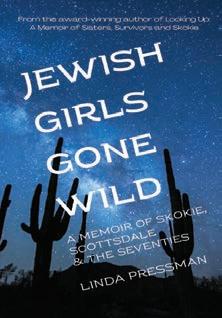
SUNDAY, APRIL 3
Playdate in the Park: 10 a.m.-12 p.m. The Early Learning Center of the East Valley Jewish Community Center is holding a playdate at a Chandler park. Location provided after registration at evjcc.org/playdate.
TUESDAY, APRIL 5
Documentary Film Series: 7 p.m. Join the Arizona Jewish Historical Society for a live screening of “The Last Survivor.” The film can also be streamed April 4-8. For more information, visit azjhs.org/ documentary-film-series.
TUESDAY, APRIL 12
An Evening of Broadway Plus: 7 p.m. Join Sharon Friendly, cantorial soloist emeritus at Desert Foothills Jewish Community Association, and Baruch Koritan, cantor at Beth Shalom in Sun City, and other entertainers for a night of your musical favorites at the Valley of the Sun Jewish Community Center, 12701 N. Scottsdale Rd., Scottsdale. For tickets, visit apm.activecommunities.com/ valleyofthesunjcc/Activity_Search/2058.
FRIDAY, APRIL 15
Passover Under the Stars: 6:15 p.m. Join Chabad Jewish Center of Mesa for a first night of Passover seder. No one will be turned away due to lack of funds. For more information, visit chabadmesa.com/seder.
THURSDAY, APRIL 21
Jewish Baby University: 6:30-9 p.m. Join the Bureau of Jewish Education of Greater Phoenix for the spring series of this class for expectant parents held at the BJE Library, Ina Levine Jewish Community Campus, 12701 N. Scottsdale Rd., Scottsdale. For more information, contact 480-634-8050 or visit bjephoenix.org.
SUNDAY, APRIL 24
Mahjong Tournament: 9 a.m.-4 p.m. Join Temple Beth Shalom, 12202 N. 101st Ave., Sun City and Tikvah-WV Hadassah for a mahjong tournament and silent auction. Cost: $45 and includes continental breakfast and lunch. For more informaiton, visit events.hadassah.org/ mahjongg.
THURSDAYS
Storytime at Modern Milk: 9:30 a.m. Bring your babies, toddlers and preschoolers to our weekly all ages in-person storytime at Modern Milk, 3802 N. Scottsdale Rd, #163, Scottsdale. We will integrate favorite children’s books and songs while giving parents new ideas for play. Cost: $5. For more information and to register, visit modernmilk.com/after-baby.
SUNDAYS BAGELS: 9-11 a.m. Join the Valley of the Sun Jewish Community Center, 12701 N. Scottsdale Rd., Scottsdale, for Bagels And Gabbing Every
Last Sunday of the month in-person. Grab a bagel and a cup of coffee and enjoy some time with your friends and make new ones. You must register to attend. Bagels and coffee will be provided. Cost: Free for members, $5 for guests. For more information and to register, visit apm.activecommunities.com/ valleyofthesunjcc/Activity_Search/1787.
MONDAYS
Mahjong: 10 a.m.-12:30 p.m. Join the East Valley Jewish Community Center in-person for mahjong. This program is intended for players with prior experience and for those who have received the COVID-19 vaccination. Masks will be required. Cost: Free. For more information and to register, visit evjcc.org/mahjong. For further questions, call the EVJCC at 480-897-0588. The EVJCC is located at 908 N. Alma School Rd., Chandler.
TUESDAY, APRIL 5 Tuesday at the J: 10-11 a.m., Join the East Valley Jewish Community Center for Tuesdays at the J free virtual presentation featuring “Seeing Arizona Through Art” presented by Phoenix Art Museum docent JoAnne Smith. For more informatinon, visit evjcc.org/tuesdays.
Transform How You See the World and Art: 1 p.m. Join the Valley of the Sun Jewish Community Center for a ground-breaking, interactive online experience that will transform how you see the world and art, and inspire you to create beautiful images. Cost: $10. For more information, visit pm.activecommunities.com/valleyofthesunjcc/ Activity_Search/2091.
Shabbat
FRIDAYS
In-person services: Congregation Beth Israel is holding services in the Goldsmith Sanctuary limited to 100 people, excluding clergy and staff. Members and guests must be fully vaccinated (two weeks since your last vaccination) and wear a mask. Children may attend and must be able to wear a mask for the duration of the service. Participants must pre-register by Thursday at 5 p.m. Priority will be given to members first and then guests. If there are more requests than available seats a lottery system will be used. To make your reservation, contact Gail Gilmartin at 480-951-0323 or at ggilmartin@cbiaz.org.
In-person services: Temple Chai is holding Friday evening (5:30 p.m. Nosh, 6:16 p.m. sevice) and Shabbat morning (varying dates and times). For more information, contact Sheana Abrams at 602-971-1234 or sabrams@templechai.com.
In-person services: Congregation Or Tzion is holding Friday evening (6:00 p.m) and Shabbat morning (9:30 a.m.) services indoors. Masks are required for everyone attending services. Services are also live streamed at otaz.org/ livestream. For more information about services, events, membership and our new COVID policy, please visit congregationortzion.org or call 480-342-8858.
Tot Shabbat in the Park: 9:30 a.m. Free totShabbat every Friday morning at Cactus Park. Shabbat music, toys and a meaningful preschool Shabbat experience. Is it your child’s birthday? Sponsor a Shabbat for $36.00. For more information and to register, visit playdatesbydesign.com/upcoming-classes.
Welcome Shabbat: 11-11:45 a.m. Join the JFCS Virtual Center for Senior Enrichment each Friday for a soothing and inspiring program to welcome Shabbat. Each week a different guest host will lead the program with song and celebration. Cost: Free. For more information, visit jfcsaz.org/cse.
In-person services: Beth El Phoenix is offering in-person Shabbat services indoors, limited to 30 people, not including clergy. Masks and social distancing required as well as pre-registration via bethelphoenix.com/form/ Shabbat-registration or by calling the office at 602-944-3359.
Erev Shabbat Service: 5:30 p.m. Rabbi Alicia Magal will lead a service livestreamed for members of the Jewish Community of Sedona and the Verde Valley. Cost: Free. For more information and to obtain the Zoom link, visit jcsvv.org/contact.

Kabbalat Shabbat: 5:30 p.m. Congregation Kehillah invites you to join services via Zoom, every other Friday, with Rabbi Bonnie Sharfman and cantorial soloists Scott Leader and Erica Erman. For the dates, visit congregationkehillah. org/events and to register and receive the link, please email info@congregationkehillah.org.
Pre-Shabbat Kiddush Club: 6 p.m. Say kiddush with Rabbi Mendy Levertov online. Cost: Free. Tune in here: ourjewishcenter.com/virtual. For more information, visit chabadaz.com.
Shabbat at Beth El: 11-11:45 a.m. Celebrate Shabbat with songs, blessings and inspirational teachings. Rabbi Stein Kokin from Beth El Congregation will lead us the first Friday of every month. Special guests will be welcoming Shabbat during the remainder of the month. For more information or to join, visit bethelphoenix.com.
In-person Third Friday Shabbat: 7-8 p.m. The Desert Foothills Jewish Community Association hosts a Shabbat service followed by a program. Contact Andrea at 480-664-8847 for more information.
MONDAYS
Tai Chi with Brian Stevens: 10-10:30 a.m. Tai Chi and Qigong are health practices that incorporate a form of ancient Korean healing martial arts known as DahnMuDo, which produces an overall limitless state of being, through focused movement and focused breathing. Experience a renewed sense of being, boost your immune system and enjoy doing so in this virtual class. For more information and to register, visit jfcsaz.org/events/. Contact CSE Director Jennifer Brauner at seniorcenter@jfcsaz.org or 602-343-0192 with questions.
Featured Presentation: 12:30 p.m. Join Smile on Seniors Mondays and Wednesdays to learn from a variety of presenters about topical issues, like Q&As with medical professionals, entertainers and lectures. Cost: Free. For full details visit sosaz.org/virtual or email Rabbi Levi Levertov at levi@sosaz.org.
TUESDAYS
Movie Discussion Group: 11 a.m. Join Smile on Seniors on the third Tuesday of every month hosted by Issy Lifshitz. Cost: Free. For full details and the movie of the month visit sosaz.org/ virtual or email Rabbi Levi Levertov at levi@sosaz.org.
WEDNESDAYS
Fitness Fun with Zoe: 10-10:45 a.m. In this virtual class, do some light chair exercise with optional weights. Class follows a format of a warmup weight free movement, optional weights, then a cool down. Some standing options, however all moves can be done sitting. Presented by JFCS Center for Senior Enrichment. Cost: Free. For more information, visit jfcsaz.org/cse. Contact CSE Director Jennifer Brauner at seniorcenter@jfcsaz.org or 602-343-0192 with questions.
THURSDAYS
In the Kitchen with Benita: 12:30 p.m. Join Smile on Seniors on the fourth Thursday of every month for some delicious cooking or baking fun! Cost: Free. For full details visit sosaz.org/virtual or email Rabbi Levi Levertov at levi@sosaz.org.
FRIDAYS
Welcome Shabbat: 11-11:45 a.m. Celebrate Shabbat virtually with songs, blessings and inspirational teachings. For more information and to register, visit jfcsaz.org/events/. Contact CSE Director Jennifer Brauner at seniorcenter@jfcsaz.org or 602-343-0192 with questions.
Musical Friday: 12:30 p.m. Join Smile on Seniors on the first Friday of every month for a musical presentation. Cost: Free. For full details visit sosaz.org/virtual or email Rabbi Levi Levertov at levi@sosaz.org. JN
Students at The Solel Preschool in Paradise Valley had fun on Purim with a princess and Spiderman.

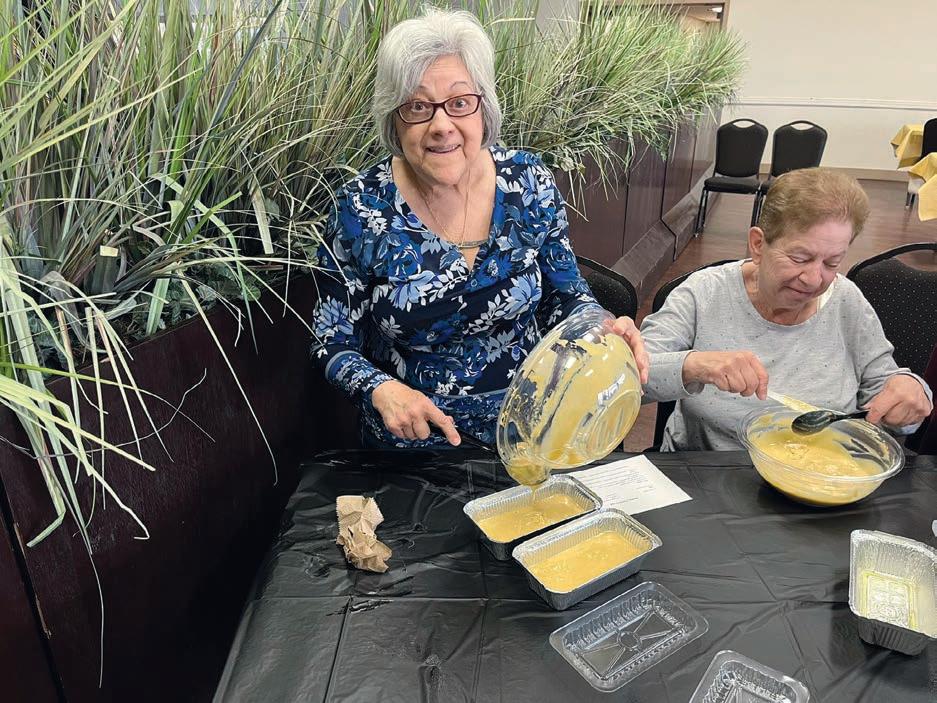
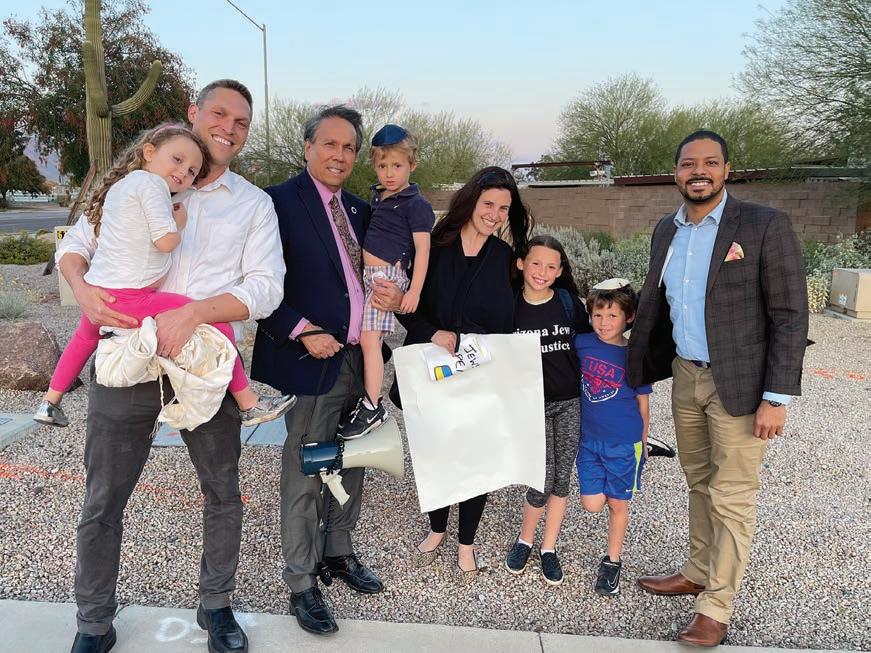

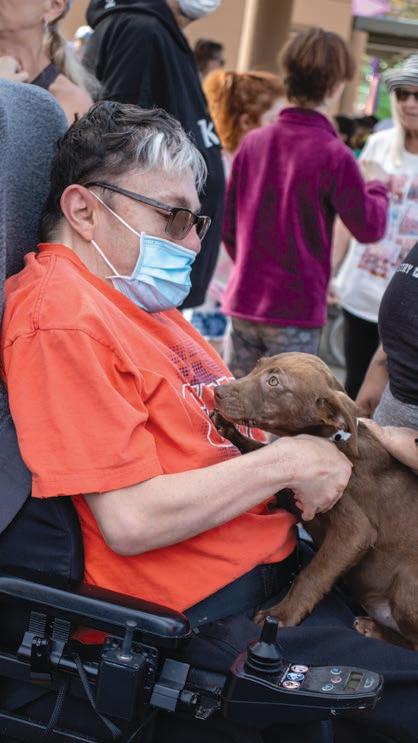


BOB ROTH CONTINUED FROM PAGE 20
Many years ago, I heard this speaker, a local resident of Scottsdale, Joel Weldon, talk about “controlling the controllables.” He asked this very insightful question: What are the things that deserve your time, focus and attention? Answer: the things you
because those ARE your responsibilities. Those are the things you’re responsible for and can control.
As we navigate these challenging times, we should be mindful as Joel says it to “controlling the controllables” and focus our energy in this area then the rest should take care of itself — right?
So, here is what I recommend. Take a news diet, limit the amount of news you are watching. Focus on the things
REACH

| Digital |
Passover

April 8
are responsible for and can control and can do something about! And NOT the things you’re not responsible for, that you don’t control and can do very little about. Here are just a few of the things you are not responsible for and don’t control: inflation, recession, the world’s supply of energy, government regulations, competition, corporate policies, the weather and what other people say and do.
Joel goes on to say, so what are the things that deserve your time, your focus, and your attention? The things you CAN control. When you think about it, it really comes down to your attitude, opportunity awareness, selfimprovement, creativity, values, goals, focus, disciplined use of time, sense of humor and commitment. You could also add your enthusiasm, preparation, loyalty, persistence, knowledge and service,
MILESTONES


that matter, your health, family, personal development, exercise, faith, etc. All of these can help lead to happiness which in-turn leads to “L.O.V.E.”
Like DNA, “L.O.V.E.” contains the building blocks for healing everything that ails individuals, communities, and nations. “L.O.V.E.” is an acronym for Learn about others, Open your heart to their needs, Volunteer to be part of the solution in their life and Empower others to do the same.
I believe the lyrics from Todd Rundgren’s song “Love is the Answer,” that was made famous by England Dan and John Ford Coley said it best: “Light of the world, shine on me, love is the answer (let it shine). Shine on us all, set us free, love is the answer.” JN
Ideas and resources for families planning celebrations and B’Nai Mitzvah. Don’t miss the opportunity to showcase your products and services.

Contact

Jewish News is accepting recommendations from our readers for our annual Best of Jewish Phoenix magazine.


Michelle Giordanna Schwartz will become a bat mitzvah on April 2, 2022 at Congregation Or Tzion.
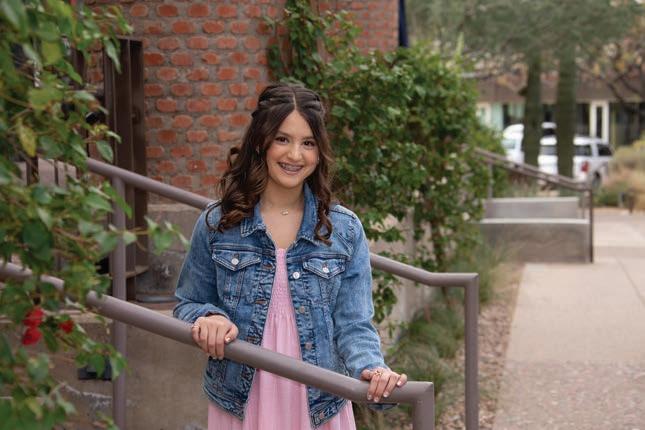



She is the daughter of Sami and Adam Schwartz of Scottsdale and sister of Ari and Alexa Schwartz.
Grandparents are Jill and Robert Schwartz of Paradise Valley; Marcia Weisberg of Scottsdale and the late Max Weisberg.
For her mitzvah project, Michelle lead sing-alongs for Gesher Disability Resources community members throughout the past year and organized a musical concert where she and some of her friends performed and A student at Pardes Jewish Day School, Michelle enjoys musical theater, volleyball,
SHARE YOUR ENGAGEMENT, WEDDING, BIRTH, BAR/BAT-MITZVAH ANNOUNCEMENT AND ANY OTHER SIMCHA ON BOTH JEWISHAZ.COM AND THE WEEKLY JEWISH NEWS ... FOR FREE . JEWISHAZ.COM



This year, we’ll focus on the best of senior health and wellness – not just physical but financial fitness as well.



We welcome your recommendations to the following questions: What do you do to stay healthy?















Is there a class or program that you participate in for your mental, physical or social health?
Have you planned for your senior future?
Have you used a service that has assisted you with modifying your home for safety, creating financial security in retirement, estate planning, or establishing a plan to age in place, downsize or move to a senior community?

To submit a recommendation, please send an email to editor@jewishaz.com, including the name of the business/program you are recommending and no more than 300 words explaining why this entity should be considered for “best of” inclusion. Recommendations will be anonymous and confidential, but we may use the description you send us in the magazine.




